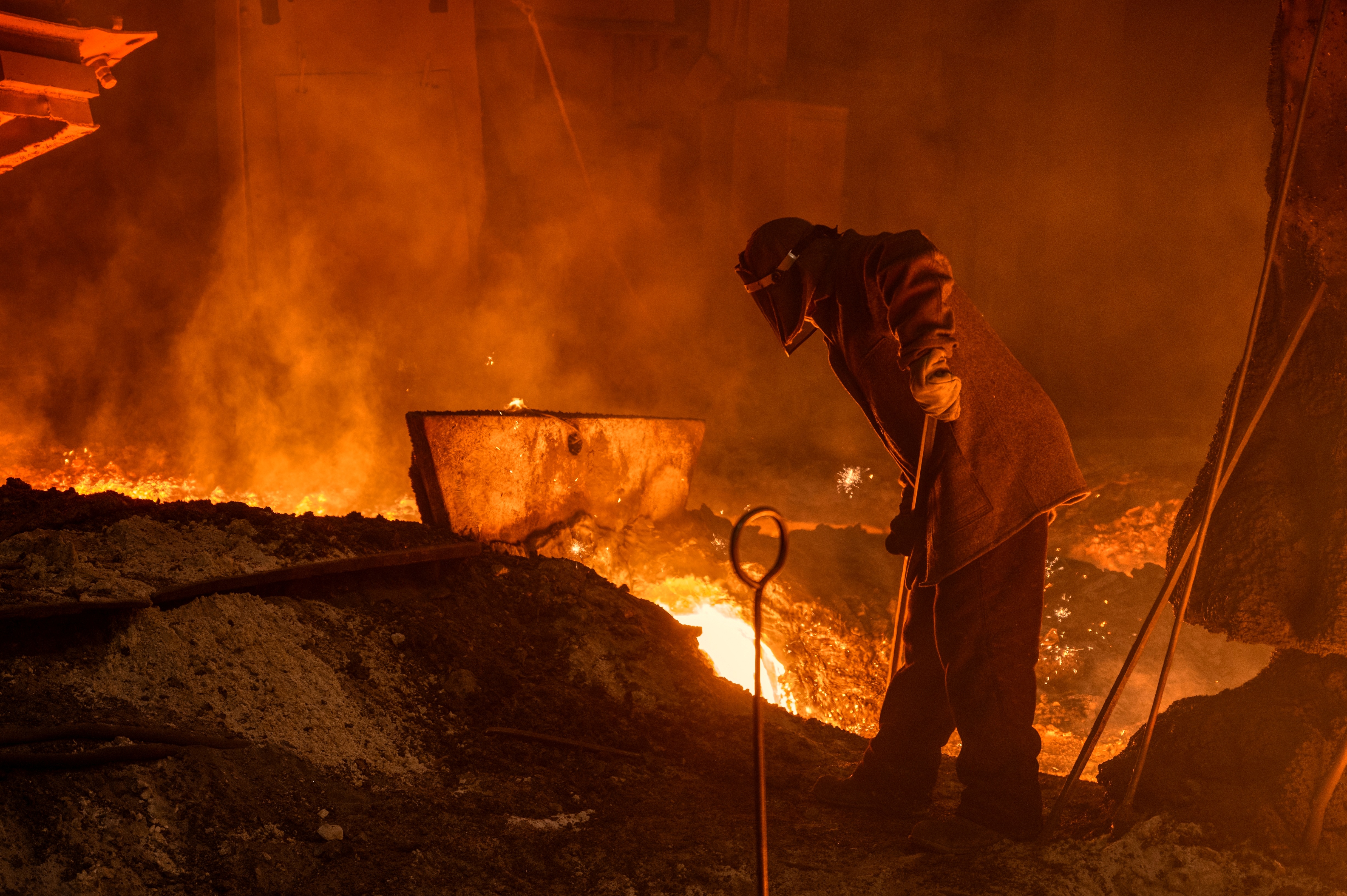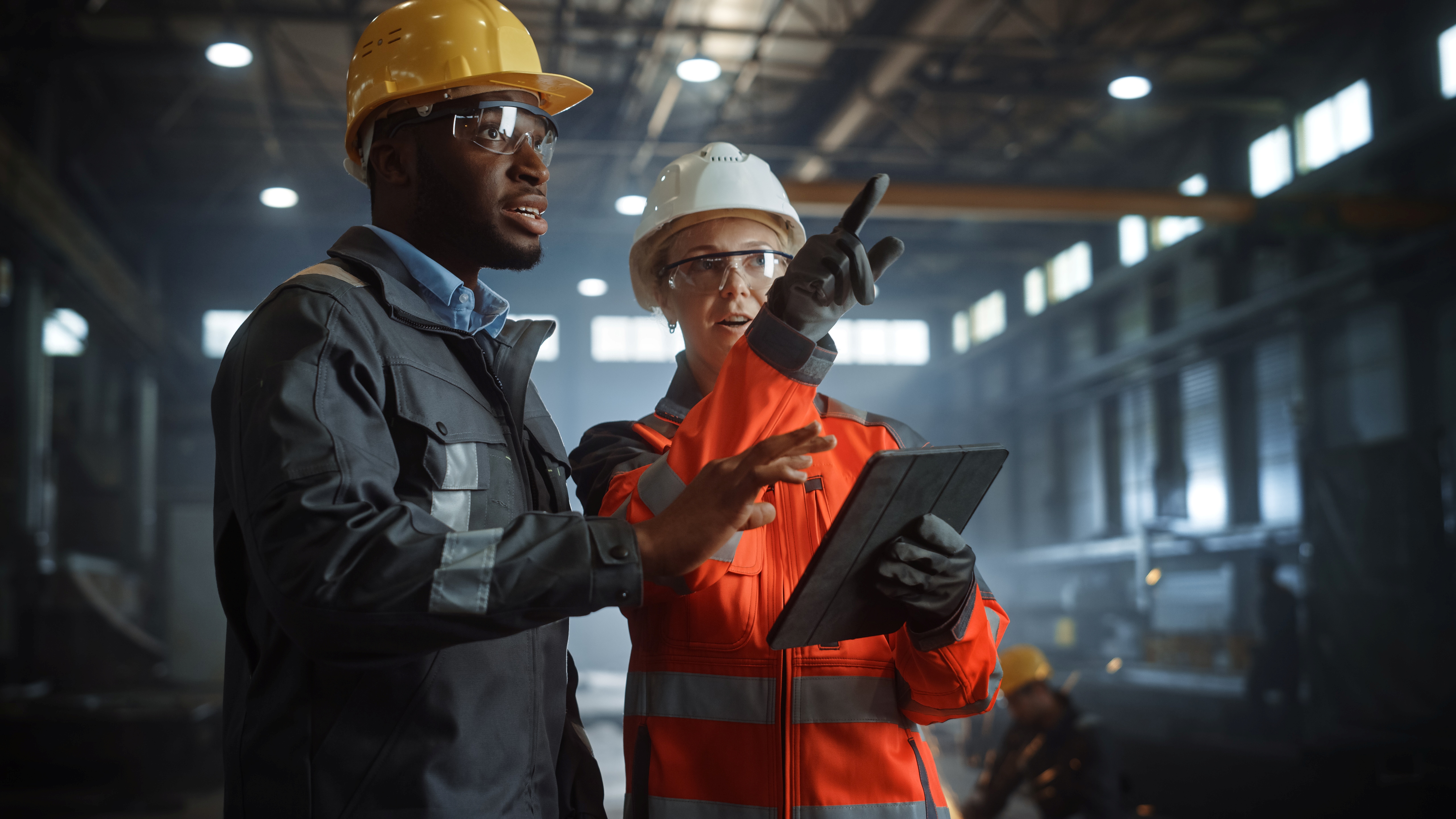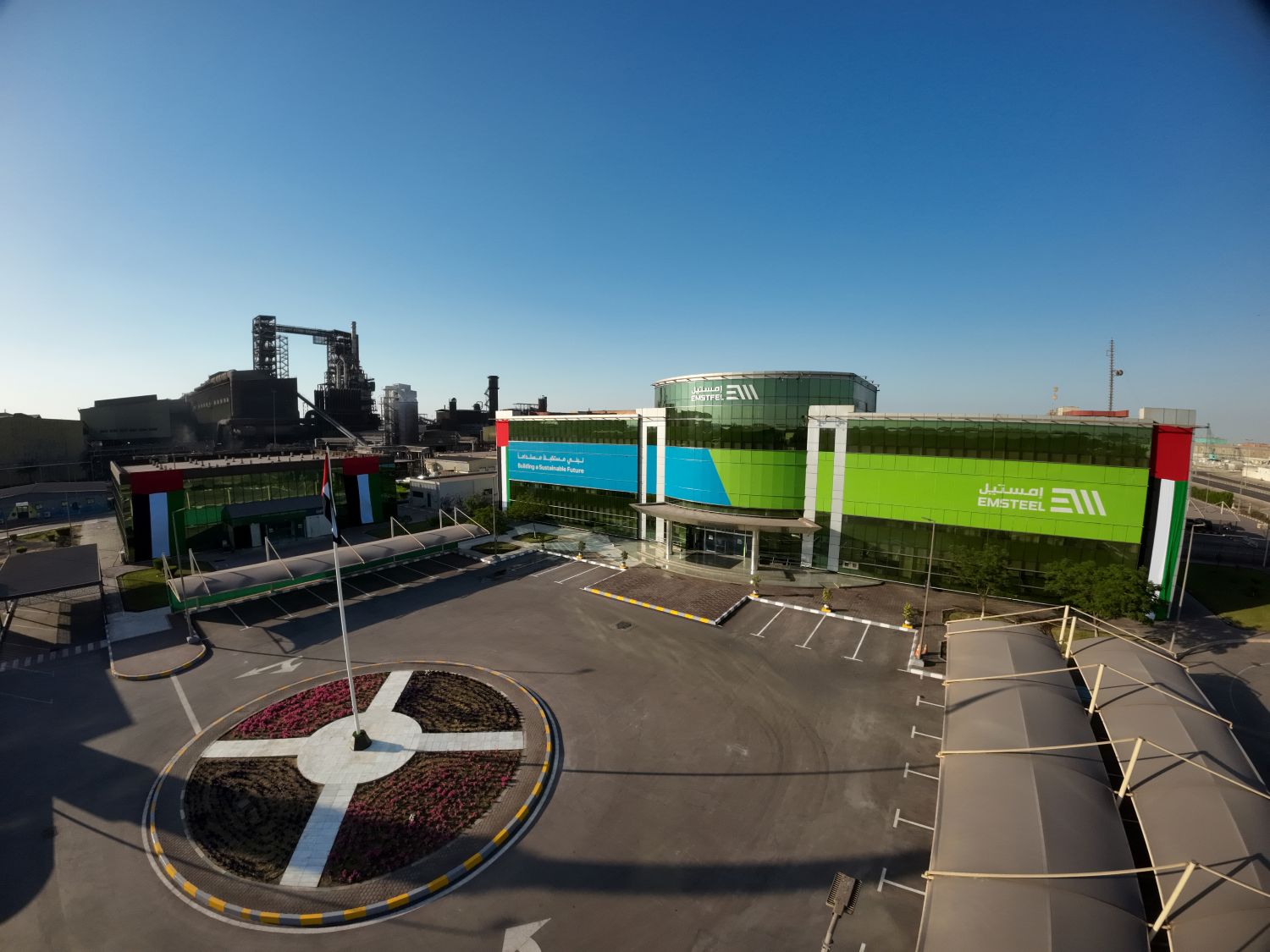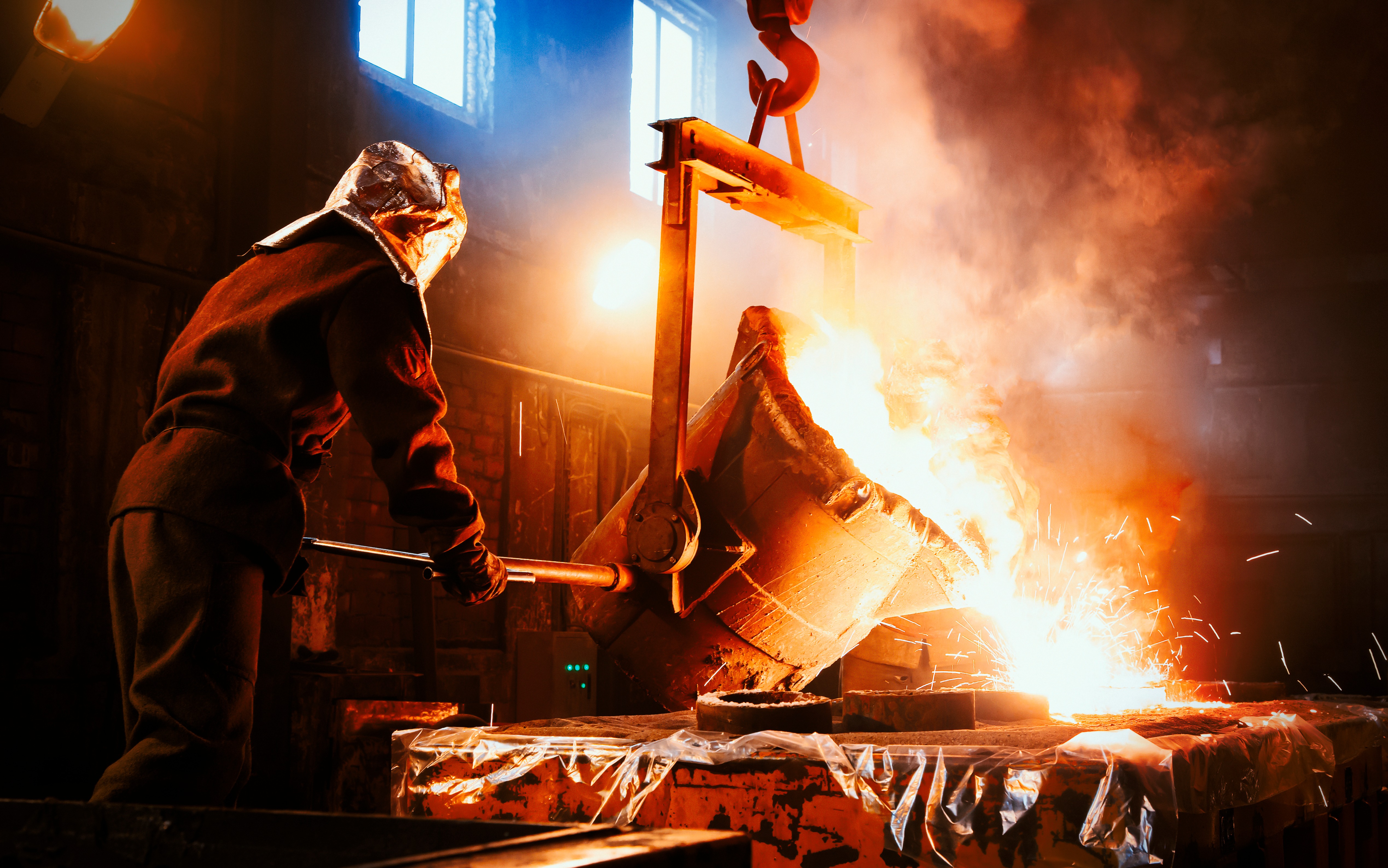

New report outlines key considerations for a just transition for mining and steel
Today, ResponsibleSteel and the Initiative for Responsible Mining Assurance (IRMA) published a landmark report, ‘Driving just transitions in the mining & steel sectors: The role of voluntary sustainability standards’, outlining how voluntary sustainability standards (VSSs) can help deliver fair and inclusive transitions as heavy industries globally move to decarbonise. It is the first report of its kind, jointly authored by VSSs from the mining and steel sectors.
Developed by ResponsibleSteel and IRMA, the report demonstrates how collaboration across the supply chain provides the necessary understanding of the challenges and opportunities faced by both sectors to achieve a truly just transition for mining and steel. ‘Driving just transitions in the mining & steel sectors: The role of voluntary sustainability standards’ introduces nine key principles and five recommendations to help VSSs integrate just transition into their frameworks.
The report also reveals a significant gap—despite commitment at both government and corporate levels to just transition principles, implementation remains slow and inconsistent. With mining responsible for up to 10% of global energy-related emissions and steel also accounting for around 10%, accelerating decarbonisation in these sectors is critical. But without deliberate action, workers and communities most affected by these transitions risk being left behind.
ResponsibleSteel CEO, Annie Heaton, commented, “Decarbonisation is one of the most pressing global issues we face today. But if we ignore its social impacts, we risk serious unintended consequences. With around six million people employed in steel and another 20 million in mining—plus millions more in supply chains and communities that depend on these industries—industry must work together with workers, communities and governments to consider how to plan the transition to benefit people as well as the planet.”
Stakeholders involved in the project—including industry leaders, supply chain actors, academia, governments, trade unions, civil society organisations, local communities, and Indigenous groups—emphasised that these transitions must not only be fast, but fair, putting justice at the heart of industrial change.
IRMA Executive Director Aimee Boulanger observed, "This research shows that for voluntary standards to succeed, they must be structured to improve justice and inclusivity as they decarbonise and protect the environment."
Key findings from the report included:
- Justice at the centre: Stakeholders recognised the urgent need to decarbonise but stressed that justice must guide transition planning.
- Inclusive process: The specific definition of “Just Transition” is highly contested, with varying interpretations. Engaging stakeholders is key to effectively defining the transition scope, identifying social impacts, and shaping mitigation actions.
- Restorative justice challenges: Addressing restorative justice remains complex, requiring deeper collaboration among governments, companies, VSSs, and historically impacted communities.
- Flexibility: Just transitions will differ across contexts and sectors. Principles must remain adaptable to be effective.
Funded by the ISEAL Innovations Fund with support from the Swiss State Secretariat for Economic Affairs (SECO), the report draws on international principles from the International Labour Organisation (ILO) and the UN Working Group on Human Rights, academic justice theory, interviews with 35 stakeholders, and two in-person workshops held in Brussels and Johannesburg.
This work highlights the unique role VSSs can play in providing practical frameworks for implementation, accountability, and verification, setting a clear reference point for steel and mining companies to plan transitions in a way that is equitable and fair. Both ResponsibleSteel and IRMA will continue to engage with stakeholders to discuss the best way to integrate just transition principles into their respective systems.
Read the full report here.
For more information, please contact:
ResponsibleSteel: communications@responsiblesteel.org
Initiative for Responsible Mining Assurance (IRMA): info@responsiblemining.net
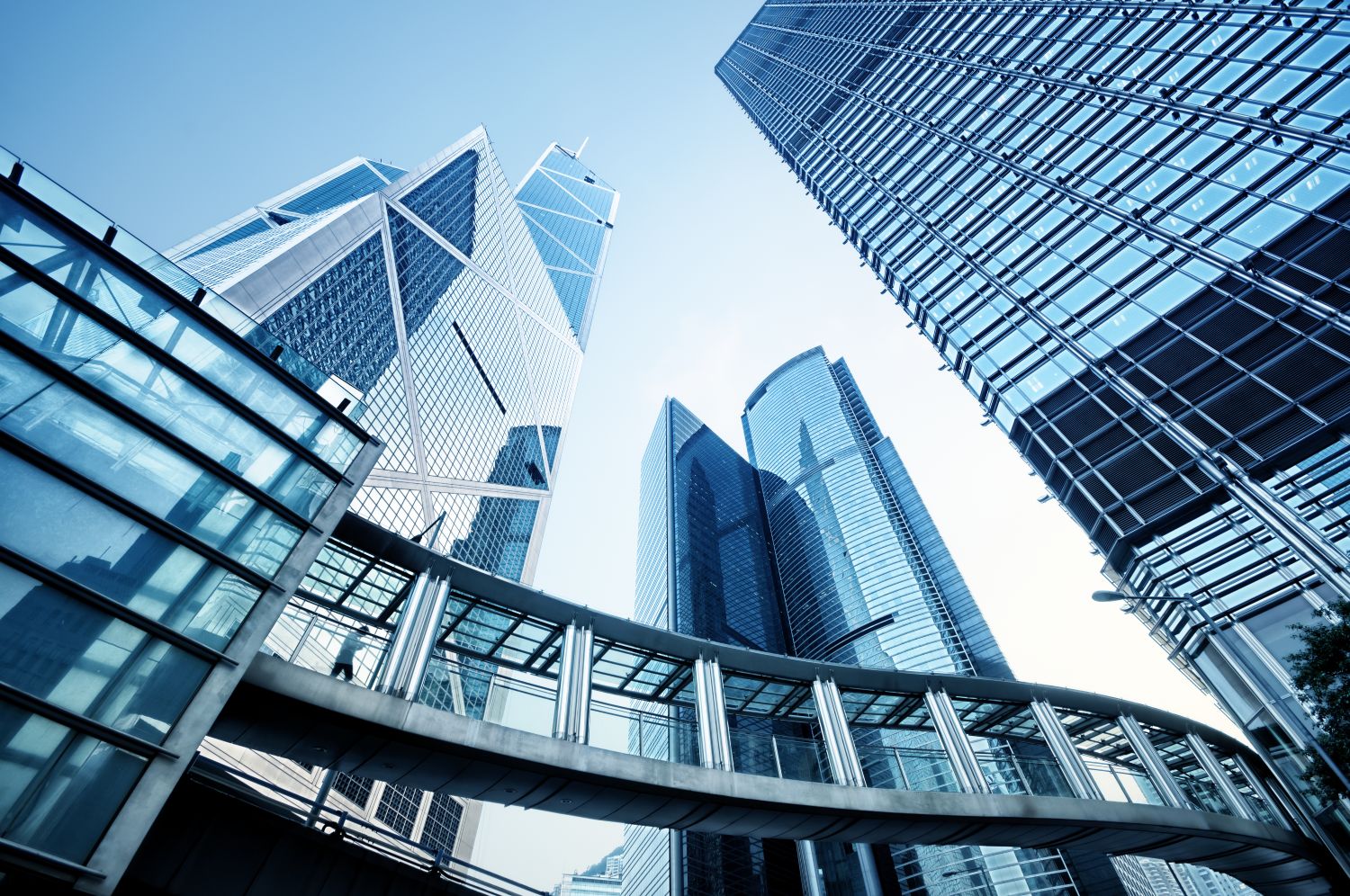

The February edition of the ResponsibleSteel Newsletter is out!
The February edition of the ResponsibleSteel Newsletter is out!
Multistakeholder engagement is at the heart of ResponsibleSteel’s work, and this month we’re excited to launch our new quarterly all-member webinars. We are also drawing attention to our member commitments and inviting members to share examples of progress in action.
Other highlights from this month’s newsletter include progress on the revision of the ResponsibleSteel International Production Standard, the launch of our new Resources Hub and more ways for members to get involved.
In this month’s newsletter, you’ll also find:
- Dates for the Q1 all-member webinars and reference group meetings
- Membership commitments and leadership opportunities
- Updates on the ResponsibleSteel Standard Revision process
- Introduction to our new Resources Hub
… and more.
Read the full February newsletter here.
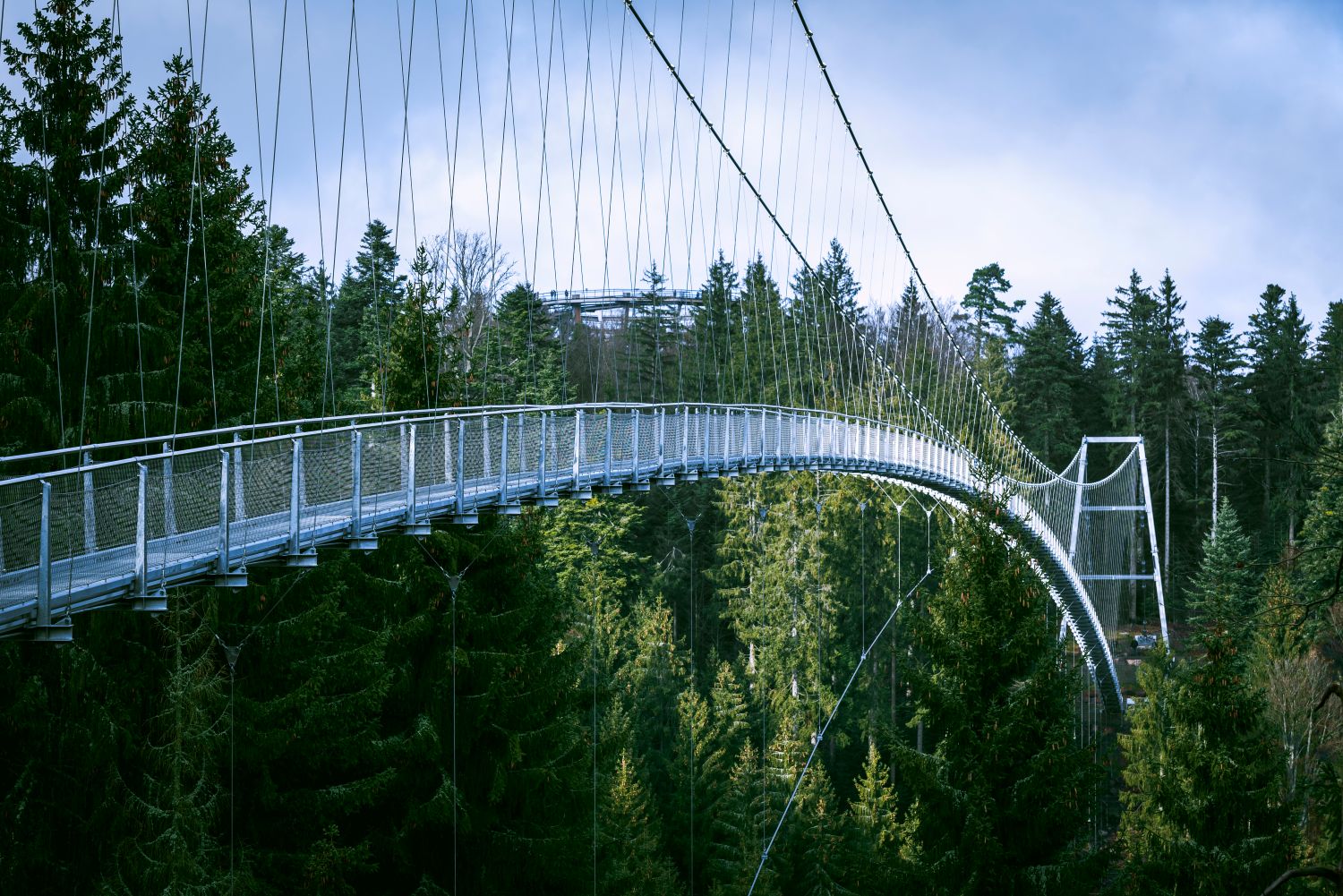

The January edition of the ResponsibleSteel Newsletter is out!
As we begin 2026, the year ahead promises to be an exciting and productive one for ResponsibleSteel and the global steel sector. Building on the momentum of 2025, we are continuing to work with our members and partners to advance credible, internationally aligned pathways for responsible low-emission steel.
This month’s newsletter highlights several strands of work beginning to shape our priorities for the year ahead. From progress on our interoperability work with CISA, to key developments in the revision of the International Production Standard, plus new opportunities for members to get involved, 2026 is already off to an exciting start for ResponsibleSteel.
In this month’s newsletter, you’ll also find:
- An update on our interoperability work with CISA
- A call to join our Just Transition working group
- Updates on the ResponsibleSteel Standard Revision process
- An introduction to our newest steelmaking member and an approved Certification Body
- Upcoming audits details
… and more.
Read the full January newsletter here.
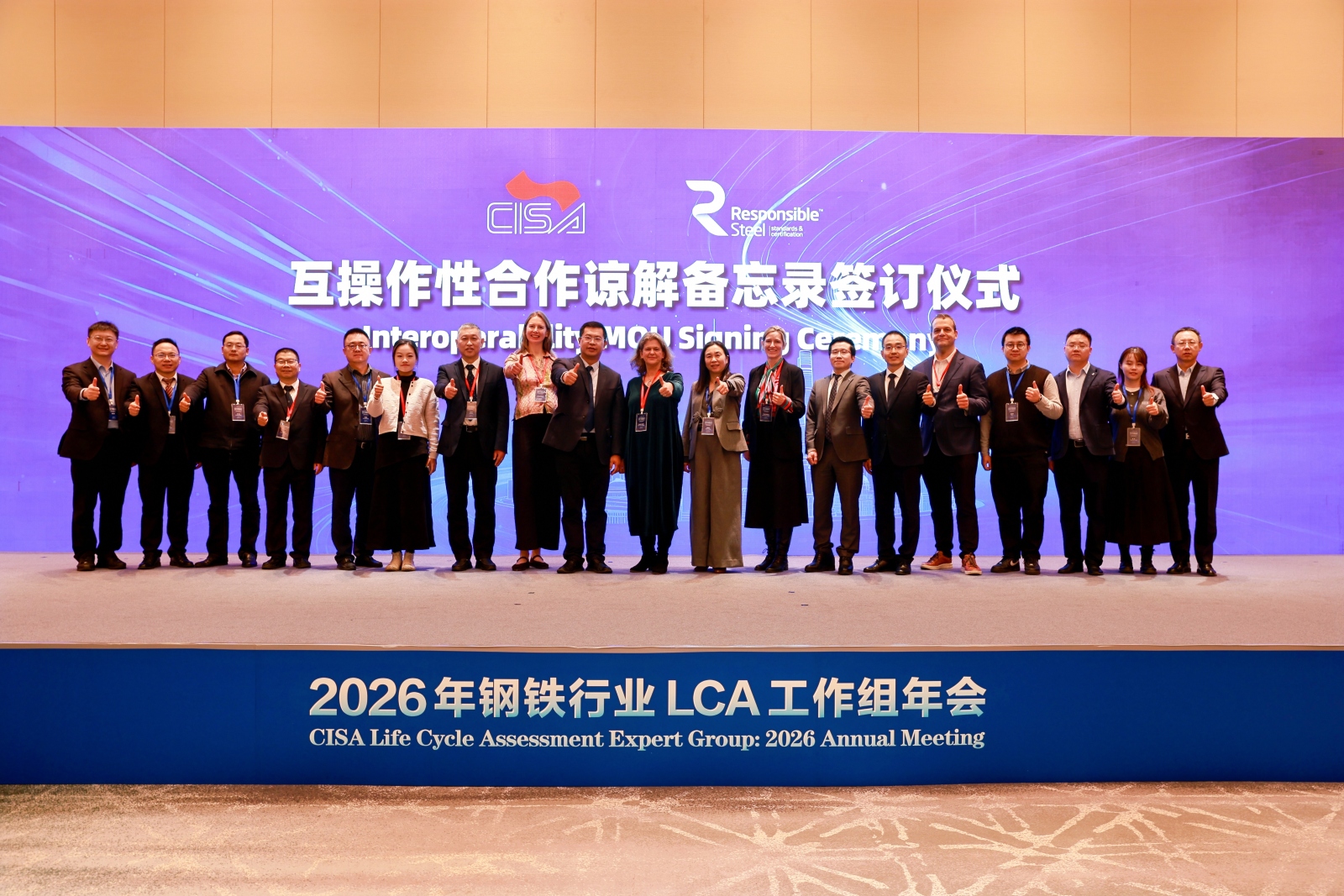

Reflections from China: ResponsibleSteel's CEO Annie Heaton discusses building interoperability across global standards
Interoperability: Building a bridge between global standards
ResponsibleSteel's quest for a coherent market for decarbonised steel in 2026 got off to a constructive start this month. Following the announcement of our landmark agreements with the Chinese Iron and Steel Association (CISA) and the Low Emission Steel Standard (LESS) at COP30, ResponsibleSteel was in China in January to kick off our work on interoperability with CISA. This work in China complements our parallel project with Brussels-based LESS.
The goal? To build trusted data and claims on decarbonisation.
During our trip, our Director of Programmes, Amy Jackson, our Decarbonisation Lead, Alli Devlin, and myself had the opportunity to:
- Present to the Chinese steel value chain our C2F (China's low-carbon emission steel standard) interoperability MoU at CISA's annual LCA conference.
- Connect with our Chinese members, including SKF, World Resources Institute (WRI), Climate Group, VAMA (Valin ArcelorMittal Automotive JV), Penglai Dajin, and some of our certification bodies working in China, including Afnor and China Quality Certification Centre (CQC).
- Get to work on our C2F-ResponsibleSteel Interoperability Project, structuring the discussions around our Framework for Credible Interoperability.
- Visit the 15mtpa Zhanjiang steel plant, where a new DRI-EAF line was launched in Dec 2025. This has involved the production to date of iron reduced with hydrogen in a 1mtpa DRI plant. Whilst this is currently produced from refined coke oven gas, the project is a hugely significant demonstration of the potential to produce hydrogen-based DRI at an industrial scale.
.jpg)
What do ResponsibleSteel's interoperability projects look like in practice?
In short, interoperability means measuring emissions using rules that are as aligned as possible, and recognising the differences, to enable comparison on a like-for-like basis. Imagine the benefit this would bring for anyone wanting to distinguish what good looks like, for example, procurement teams, investors, and policymakers.
But making interoperability work in practice requires a lot more if we want a reliable, credible and sustainable system that generates high-quality, comparable data.
We've outlined the key components of this in our Framework for Credible Interoperability, which will inform both our work with LESS and CISA:
- Aligned GHG accounting rules
- A reliable calculation tool
- A robust assurance mechanism
- Credible claims protocols
- Good governance, oversight and resourcing
- Appropriate data management
- Strong operations management systems
This is how markets are built: first with innovation, then with the necessary rules and systems that enable good information to flow – so that steel buyers can understand, investors can evaluate, and steelmakers can compete, based on emissions performance that everyone can trust.
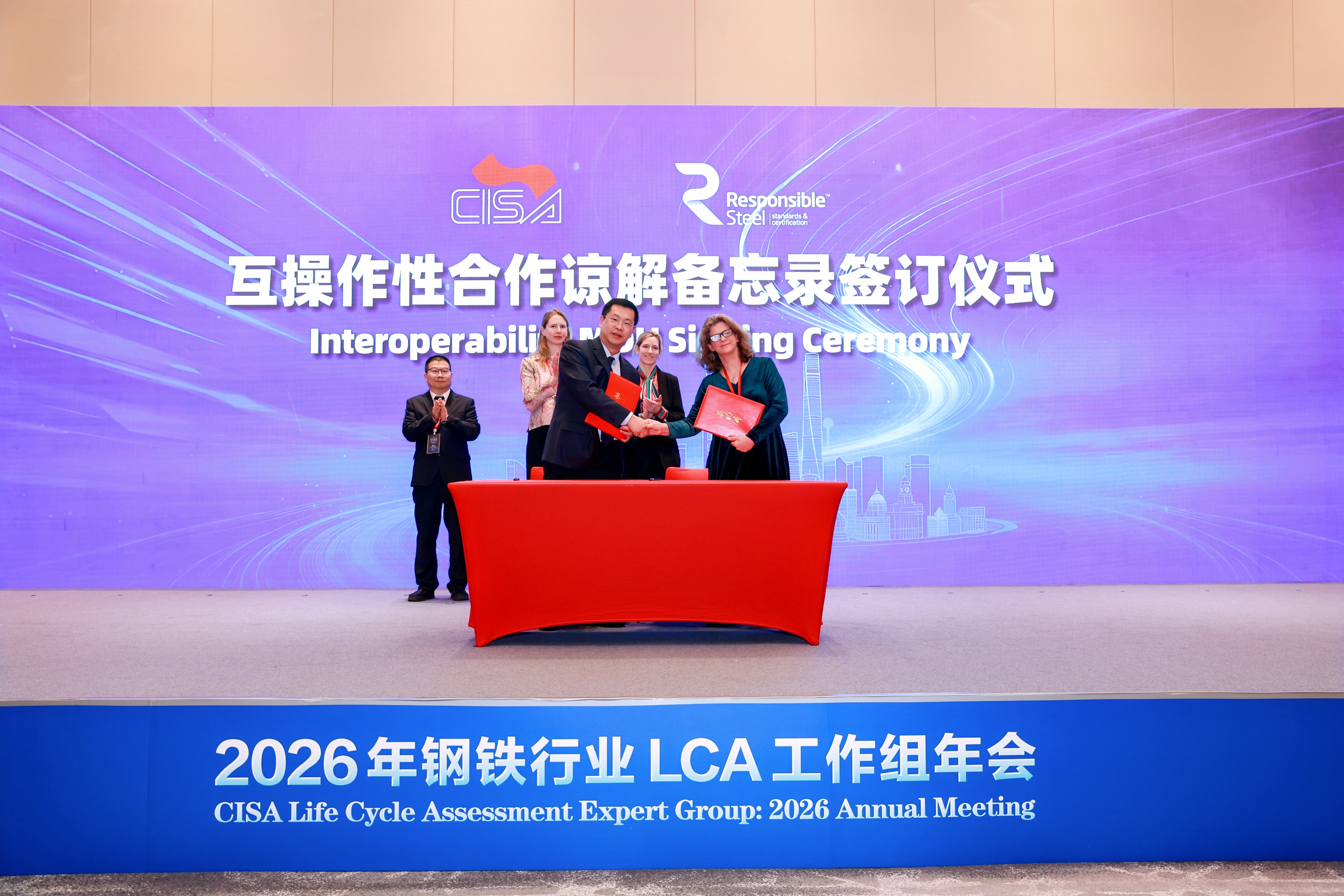
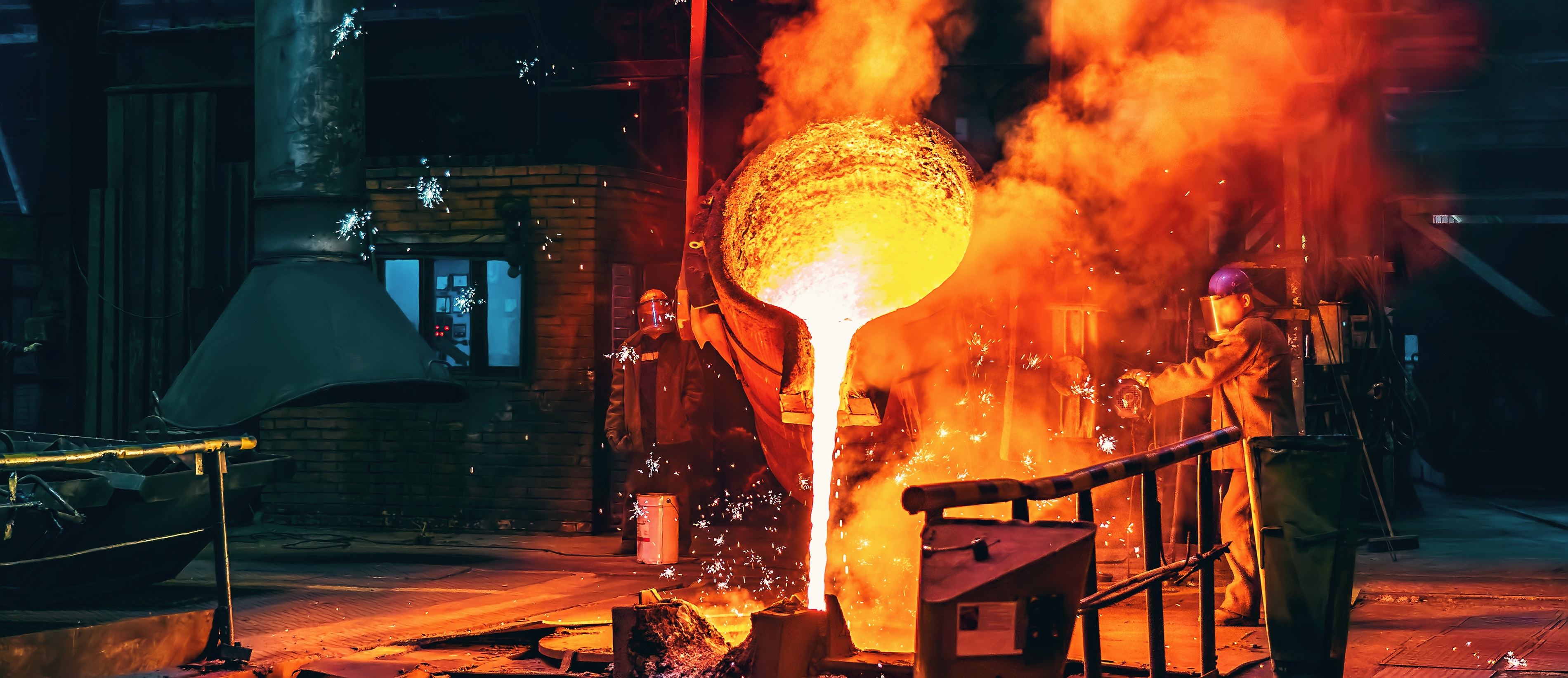

Evolving for Impact: Why We’re Revising the ResponsibleSteel International Production Standard
The ResponsibleSteel International Production Standard is the global benchmark for sustainable steelmaking, but a benchmark only matters if it keeps pace with change. Steelmakers face evolving challenges, including increasingly ambitious climate targets, shifting regulations, and rising expectations on social and environmental responsibility.
That’s why ResponsibleSteel is committed to continuous improvement, ensuring our Production Standard remains relevant and effective in driving progress towards the responsible production of near-zero steel.
What is the ResponsibleSteel International Production Standard?
The ResponsibleSteel International Production Standard consists of 13 Principles containing over 500 requirements for the responsible sourcing and production of steel, including some of the most challenging areas of sustainability for steelmakers, such as decarbonisation. However, responsible steelmaking goes beyond climate change mitigation. That’s why the Production Standard also lays out requirements on labour, human rights, water, biodiversity, and more.
How was the Production Standard developed?
The Production Standard was developed through a process that uses the ISEAL Code of Good Practice for standard-setting as a reference. The first Standard was developed over two years with input from over 70 organisations and 180 individuals. Since then, the Standard has continued to evolve with the needs of the industry. Read more about the evolution of ResponsibleSteel and the development of the Standard here.
Collaboration and transparency sit at the heart of our Standard. Our extensive multi-stakeholder development process involving the steel industry, upstream and downstream stakeholders, and civil society is what makes the ResponsibleSteel International Production Standard the most trusted standard for steel globally.
Why are we revising the Production Standard?
Since the launch of the first Standard in 2019, ResponsibleSteel has established itself as a leader on steel sustainability. As the global industry landscape continues to evolve, driven by shifting regulations, emerging ESG reporting requirements, technological innovation, and growing expectations to address social and climate issues, the Production Standard must also evolve.
As part of our commitment to continuous improvement, ResponsibleSteel reviews the Production Standard to assess whether revision is needed at least once every five years. This way, we ensure the Production Standard remains effective in supporting ResponsibleSteel’s mission to drive the responsible production of near-zero steel.
What is the standard revision process?
The revision process is outlined as part of ResponsibleSteel’s Standards Development Procedures. The process consists of five overarching stages:
- The ResponsibleSteel Secretariat reviews the Standard and holds a public consultation to determine topics for revision. Based on these inputs, the Secretariat makes a recommendation to the ResponsibleSteel Board of Directors, which decides whether or not to revise the Standard.
- Terms of Reference are developed, then approved by the Board of Directors, defining the scope of the revision and outlining the revision process.
- Topic-based Working Groups provide input on revision areas, and Technical Advisory Groups are convened to review and oversee Working Group outcomes.
- A draft of the revised Standard undergoes public consultation to get stakeholder feedback. If there is substantially new content, or extensive changes or feedback, there is a second round of public consultation. Once the revised Standard is finalised, it is reviewed and approved by the Board of Directors before being voted on by ResponsibleSteel’s membership.
- The revised Standard is published, and a transition period is determined (usually lasting 6 to 12 months) before the new Standard comes into effect for existing certificate holders, however, it could be used earlier for new sites or if preferred by existing certified sites.
Currently, the revision process is in stage three.
What is being revised in the Production Standard?
The revision process focuses on ensuring the Production Standard reflects the latest sustainability priorities and realities of steel production. So far, discussions have commenced on aspects of Principle 10: Climate Change and GHG Emissions, Principle 6: Labour Rights, ensuring a just transition, and increasing alignment with emerging regulations and other standards (e.g. CRSD, ISSB).
Additionally, the revision will include the incorporation of urgent revisions, interpretations and clarifications previously issued, and necessary amendments identified during the review process (e.g. typos).
Who can get involved?
Driving the socially and environmentally responsible production of near-zero steel is a challenge that no single organisation can achieve on its own. Over 180 voices contributed to the development of the first ResponsibleSteel Standard, and this spirit of multi-stakeholder collaboration continues to be the backbone of our standards development process.
ResponsibleSteel members have a unique opportunity to contribute to the revision of the Production Standard and are invited to join our Working Groups to discuss topics for revision. Please get in touch with us to learn more.
Members and wider stakeholders are also encouraged to contribute feedback during public consultations in 2026. Keep an eye on our website, LinkedIn, and our monthly newsletter to find out about upcoming public consultations.
Learn more about the revision process and get involved here.
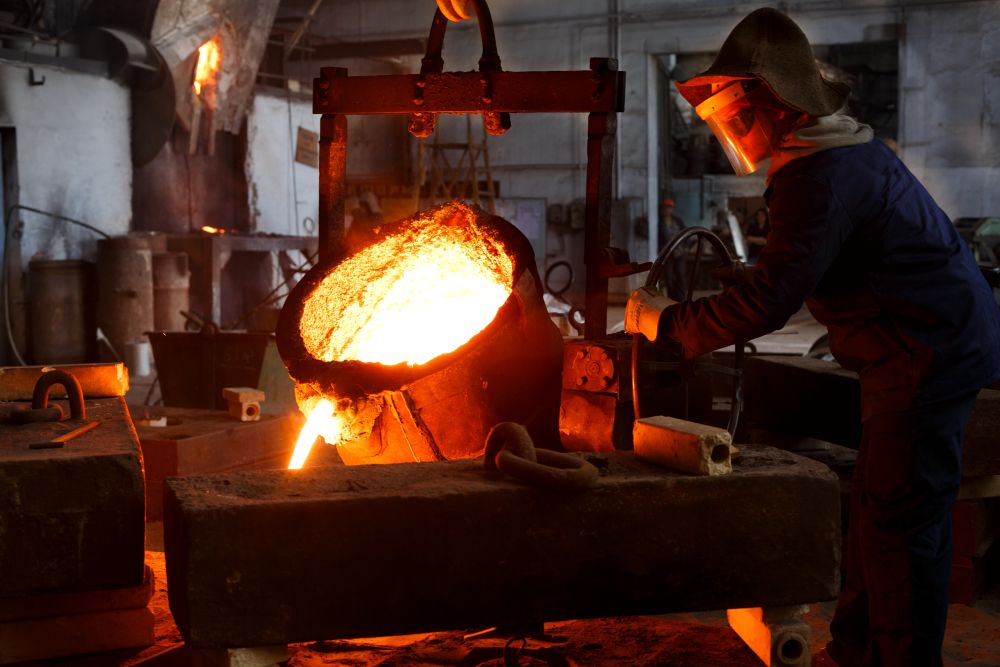

December Newsletter
The December edition of the ResponsibleSteel Newsletter is out!
As 2025 draws to a close, we reflect on a year of both challenge and progress for the global steel sector. Amid a rapidly evolving policy and market landscape, ResponsibleSteel has continued to work alongside its members and partners to advance credible, internationally aligned pathways for responsible and low-emission steel. We would like to thank our members, stakeholders, and supporters for their continued commitment and engagement throughout the year.
To mark the end of the year, our CEO Annie Heaton has shared a reflection on ResponsibleSteel’s progress in 2025 and the momentum building across interoperability, standards, policy, collaboration and more. You can read Annie’s end-of-year letter here.
In this month’s newsletter, you’ll also find:
- An introduction to our new Business Board Director
- Updates on recent and upcoming audits, alongside new training opportunities
- A round-up of policy convenings in Europe and India, with insights feeding into our forthcoming policy paper
- A welcome to our newest ResponsibleSteel member
- Key developments from the ResponsibleSteel Standard Revision process
Read the full December update here.


A landmark year for ResponsibleSteel: Reflections from our CEO
Dear Members, Partners and Friends,
Just under a decade ago, ResponsibleSteel began with a bold vision: to unite the steel industry around a shared commitment to sustainability. As we stand on the threshold of our tenth year, that vision matters more than ever.
You, our members, have championed ResponsibleSteel and its evolution over the years, and driven real progress across the steel industry. I thank you for your continued commitment, even amid complex global challenges.
Mounting pressure to stay competitive while delivering on climate commitments underscores why credible, coherent standards and collaboration across the steel value chain must remain a priority. They are essential to ensure that policy, finance and demand side dynamics shape the future of the industry in a fair and effective way.
Leading the way: Thought leadership and interoperability
This year, ResponsibleSteel took a decisive step forward in shaping the future of low-emission steel. Our leading work on interoperability moved from concept to reality, sending powerful signals to governments, markets, civil society, and investors that global alignment on steel decarbonisation is not only possible, but already underway.
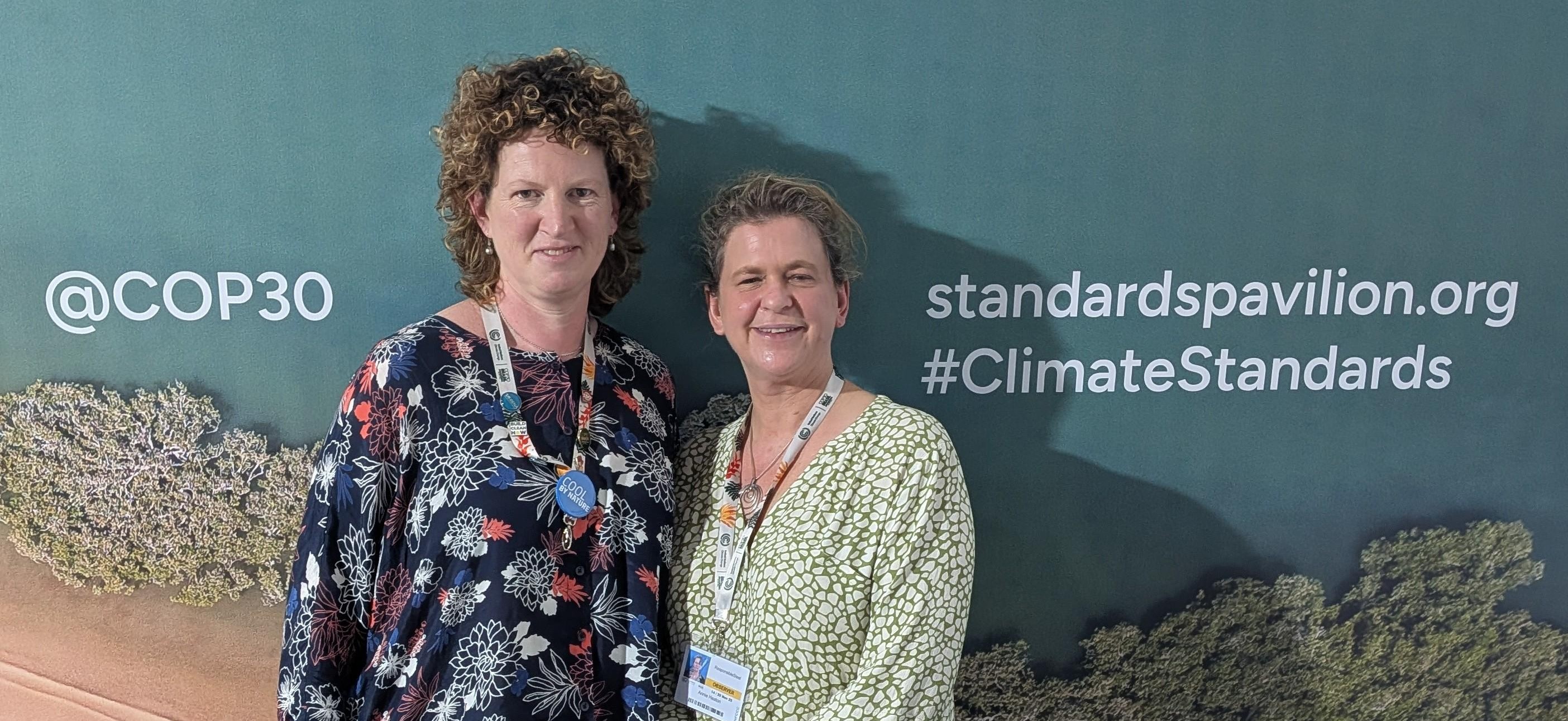
At COP30, we announced landmark agreements with the China Iron and Steel Association (CISA) and the Low Emission Steel Standard (LESS), to develop conversion tools for stakeholders to claim equivalency of their decarbonisation progress under the different schemes. Together, membership of the three organisations represents around 60% of the world’s steel production.
These agreements show that pragmatic, plurilateral solutions can deliver real progress, even when global consensus is challenging. By enabling comparability across standards, these agreements provide a foundation for trade, procurement and investment in cleaner steel. It has clearly bolstered stakeholders’ resolve to build further solutions for the transition to low-emission steel.
In a further significant announcement in December, ResponsibleSteel worked with CARES, CISA, GSCC, LESS, RMI and Worldsteel to jointly commit to the Steel Standards Principles (SSPs) Transparency Criteria for GHG reporting. These criteria outline the key measurement rules behind any carbon intensity disclosure, and their disclosure will enable stakeholders to understand the data they are given and drive standards initiatives closer to achieving clarity, transparency and interoperability. These milestones towards comparable, transparent emissions reporting build on the technical groundwork we have laid, including the publication of our Fundamentals for GHG Emissions Accounting and Classification and verified greenhouse gas (GHG) emissions data from ResponsibleSteel Certified Sites.
They represent important steps towards transparent and consistent emissions accounting and data disclosure across the steel industry and mark a real turning point in how standards can support action at scale.
Policy: Engaging government and policymakers to support the transition
Policy is undeniably one of the most powerful levers for driving sustainability, which is why policy engagement has been another cornerstone of our work in 2025.
We began by publishing The Steel Decarbonisation Scale, a joint policy briefing with LESS, urging European policymakers to adopt a realistic approach to steel decarbonisation - recognising scrap supply limits and incentivising genuine emissions reductions across all production routes.
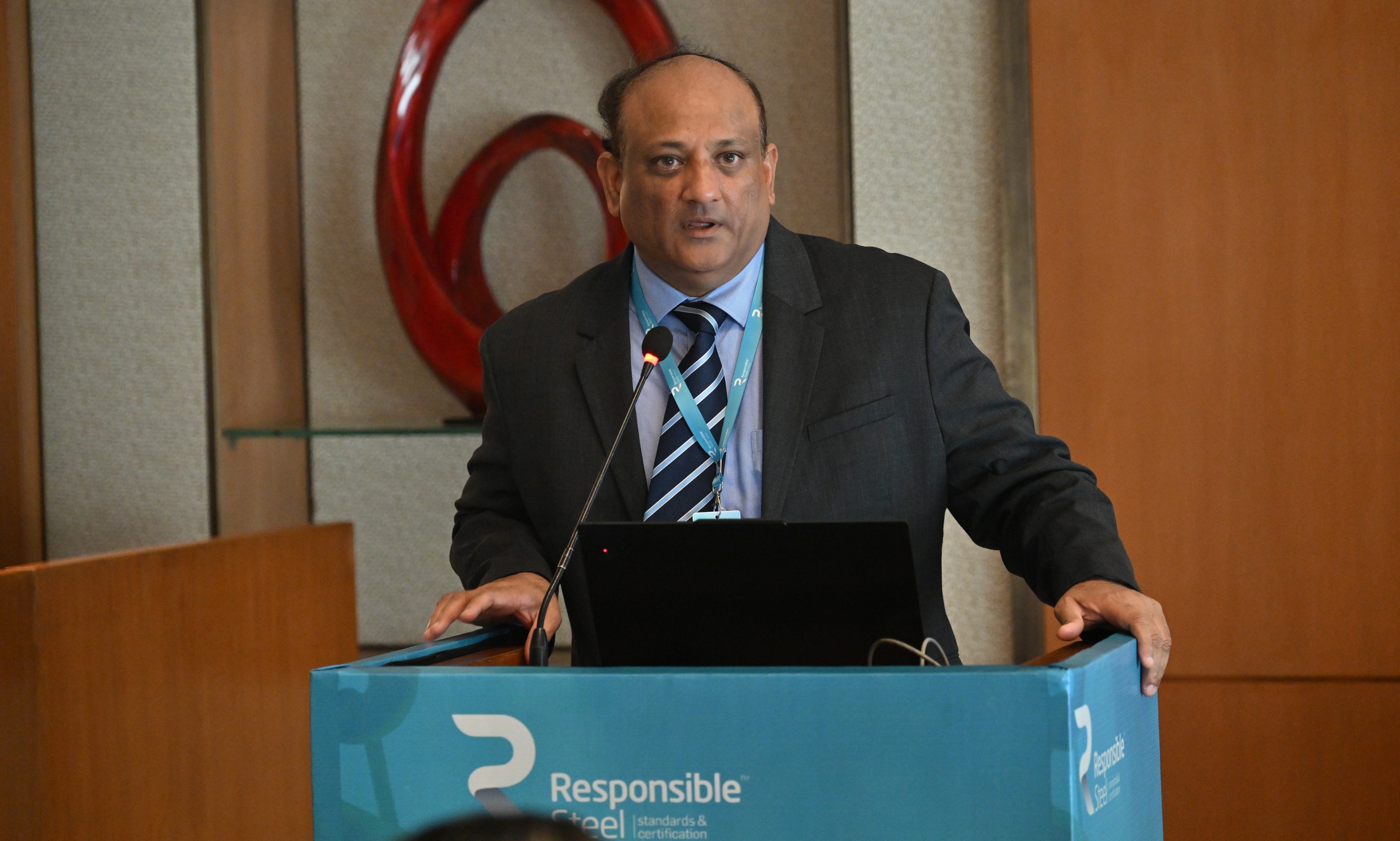
We convened stakeholders in Brussels and Delhi to explore how standards can inform policy mechanisms such as lead market labels, carbon pricing schemes, including cross-border mechanisms, green procurement frameworks and national decarbonisation pathways. I want to thank all our contributors; your insights will shape our global policy paper, which will be published in early 2026.
Progress on our programmes: Standards, certification and member impact
Despite setbacks to wider industry progress, ResponsibleSteel has strengthened its role as the leading global standard for responsible steelmaking. Our Standard Revision process is well underway, ensuring the ResponsibleSteel International Production Standard remains effective, relevant and fit for purpose. Alongside this, our Just Transition project continues to explore how standards can support a fair and inclusive shift to low-emission practices across steel and mining.
Certification remains at the heart of our mission, allowing steelmakers to demonstrate measurable progress across key social and environmental issues. In 2025, major certification milestones included thyssenkrupp Steel’s Duisburg site, the largest in Europe, and EMSTEEL, the first site in the MENA region, bringing the total to 90 Core Site Certifications covering 142.436 Mtpa capacity.
Certifications and recertifications this year spanned eight countries and five regions: Europe, South America, Oceania, Asia and the Middle East. Over 80% of sites due for renewal chose to recertify, with additional recertifications already underway for next year. These certifications prove that, even in a complex global environment, organisations continue to step up in order to build a more responsible steel value chain.
Another compelling example of the practical progress certified steelmakers are making is our case study with SIJ Group, whose SIJ Acroni and SIJ Metal Ravne sites achieved ResponsibleSteel Core Site Certification in 2024. SIJ outlines why they undertook certification and how it has enhanced their credibility within the market and laid the foundation for continuous improvement across their operations.
Finance and demand: Driving investment and the right market signals
The key to the success of any certification scheme is the value it delivers to the certificate holder. Our Certified Steel Campaign helped demonstrate the credibility of ResponsibleSteel certification to investors and customer networks, showing how it can support procurement and investment decisions, mitigate supply chain risk, and strengthen their market position. By engaging finance, automotive, construction, infrastructure, and beyond, we worked to drive stronger market signals for Certified Steel and showcase the progress certified steelmakers are making towards responsible, near-zero steel.
We have convened lenders and investors both in New York in May and via our online Finance Working Group, bringing together finance sector representatives with steelmakers and civil society to explore how certification can inform investment decisions and be seen as an indicator of risk readiness.
With steel company testimonies, these sessions highlighted the benefits of ResponsibleSteel certification and prompted discussion of how credible standards can mobilise capital toward low-emission steel.
Moving forward: Accelerating the responsible steel transition
The urgency of our mission cannot be overstated. Scientists now expect the world to reach 1.5°C warming by 2030, not 2050. There is growing recognition that credible, transparent, comparable standards must sit at the heart of policy, finance and demand mechanisms if we are to deliver real progress on climate and social issues affecting workers and their communities.
ResponsibleSteel will continue to lead this work, but success depends on all of you, steelmakers, buyers, material suppliers, civil society, investors, and policymakers, working together to urge and support steelmakers to use the ResponsibleSteel system as their reference.
In the upcoming year, we will revise our strategy and focus on our Value Activation Plan, including revisions to our Claims guidance to enable greater market access for those actively driving responsible, low-emission practices. Our goal is to ensure that you, our members and supporters, clearly see the value of your continued commitment to ResponsibleSteel and the tangible impacts we are having across the sector.
Thank you once again for your contribution and dedication throughout this year.
With best wishes for the year ahead,
Annie Heaton
CEO, ResponsibleSteel
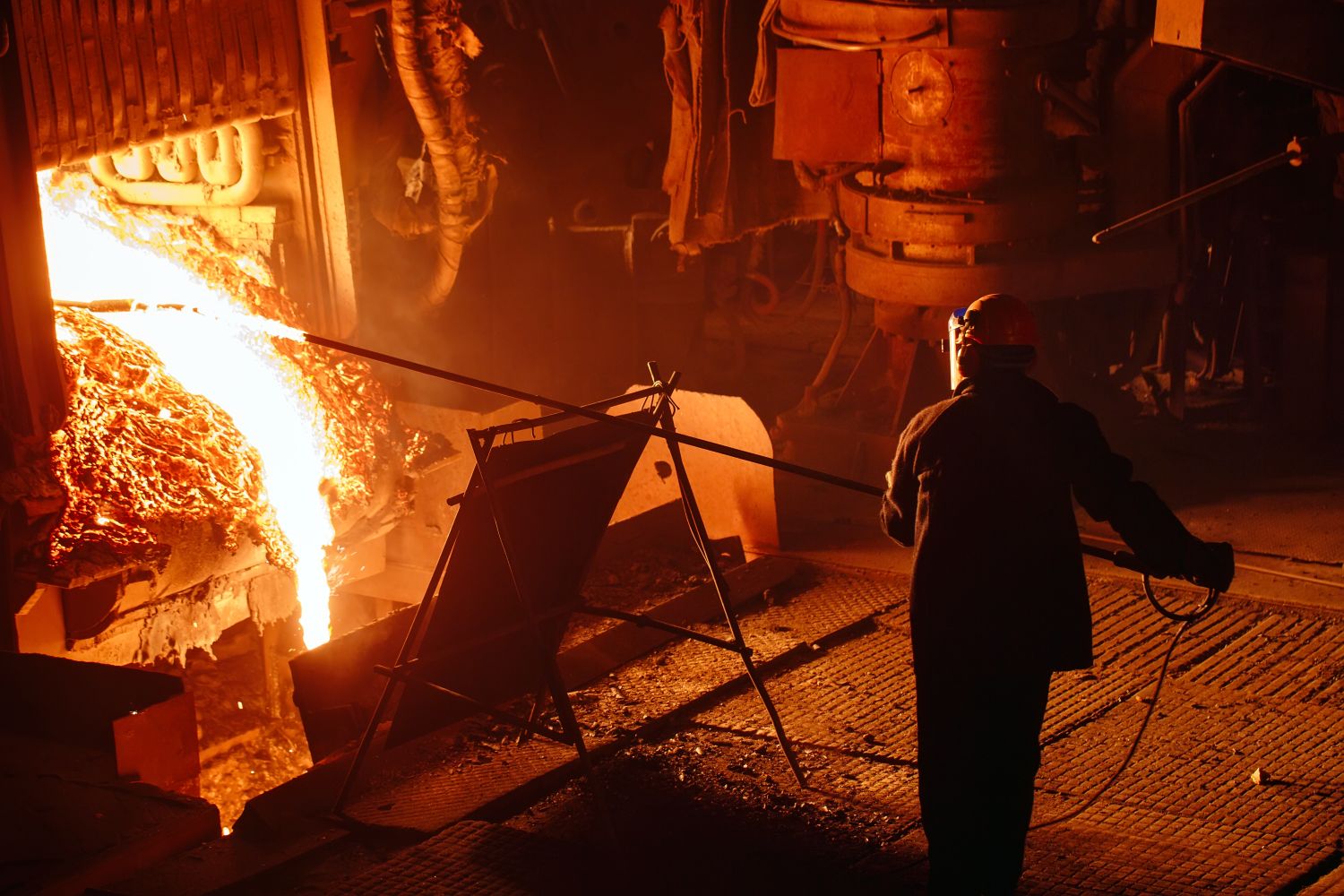

The Standard Revision: What has been achieved so far?
The ResponsibleSteel International Production Standard sets the benchmark for steel sustainability, supporting our mission to be a driving force in the production of responsibly produced steel. At least every five years, ResponsibleSteel reviews the Production Standard to determine whether revision is needed, ensuring it remains relevant and fit for purpose in a changing industry.
We kicked off the review process in October 2024 with a public consultation calling for feedback on the ResponsibleSteel International Production Standard V2.1.1, and, following approval from the ResponsibleSteel Board of Directors, the Secretariat commenced the revision process earlier this year.
Over the course of 2025, the Secretariat conducted topical research and collected background data and information to inform the revision. Through reference group calls, one-on-one meetings, and various other platforms, we engaged with different stakeholder groups to prioritise the topics for revision. This formed the basis for the development of terms of reference for the inclusion of topics in the scope of the standard revision across 2025 and 2026.
Since September, the working groups (WG) and technical advisory groups (TAG) have been continuously meeting to discuss the various topics for revision.
Update on revisions to Principle 10: Climate Change and GHG emissions
One of the topics in Principle 10 (P10) is related to climate transition plans on a corporate and site-level, inclusive of the emission reduction targets, decarbonisation strategy, risk & opportunities assessment, and GHG data for disclosure. 15 members were active in the WG with an almost equal distribution of business and civil society members. As stakeholder engagement continues to finalise the proposal, some of the outcomes with support so far include removing temperature alignment and instead focusing on net zero by 2050 as the long-term corporate-level ambition; adding/modifying definitions of key terminology such as near-term, long-term and portfolio of sites to the glossary and guidance material; and revising the structure of P10 to clarify the requirements.
An upcoming priority revision topic in P10 will be regarding the harmonisation of criteria 10.3 and 10.4 for the measurement of GHG emissions at the site. The intention is to increase the utilisation of ResponsibleSteel’s comprehensive crude steel emissions accounting methodology, thereby driving more transparent and comparable GHG data disclosure across Core Site Certification. In addition to reviewing the harmonisation criteria for steelmakers, the scope of review will especially include considerations for value chain members operating upstream or downstream of the steelmaking site, as well as the review of Annex 5’s default embodied GHG values for imported materials and fuels.
The last P10-related topic is related to high-alloy and stainless steels. Currently, the ResponsibleSteel Decarbonisation Progress Levels (DPLs) account for carbon steels (with <8% alloy inputs). To enable Steel Certification for high alloy and stainless steels, we are in the process of developing specific DPLs for this sub-sector of the steel industry. ResponsibleSteel and SMR Group (Steel & Metals Market Research) have partnered on the development of a stainless steel GHG emissions model at mill level. Recently, the stainless steel emissions model architecture was presented by SMR to the WG for their feedback.
Now, with further robust data and assumptions underpinning the model, it will cover over 80% of global stainless steel production. Subject to funding, next steps include a dynamic material flow analysis assessment and mapping of near-zero stainless steel emissions potential, which will feed into the development of the emissions thresholds.
Update on revisions to social topics: Labour rights and Just Transition
The key areas of focus for Principle 6: Labour Rights relate to the annual leave requirement and policy requirements. The revision was triggered by a stakeholder request to change the Production Standard, followed by further discussion as part of a working group in 2024. Currently, the TAG is discussing the working group’s previous recommendation, evaluating a proposed approach and next steps.
On Just Transition, the working group has been discussing and sharing views on how the concepts should be incorporated into the revision of the Production Standard. These discussions will continue into 2026. The Secretariat is in the process of planning additional meetings in 2026 and is seeking additional members to join the WG to ensure broad perspectives and improved representation.
Get involved
If you are interested in adding your voice to the standard revision in relation to any of the aforementioned topics, or beyond, please get in touch with us here.
Visit our new webpage to find out more about the revision process
We’re also pleased to launch our new webpage for the revision of the Production Standard, where you can now find all information relating to the revision timeline, working groups, topics under revision, and how to get involved.
Visit the Standard Revision webpage here.
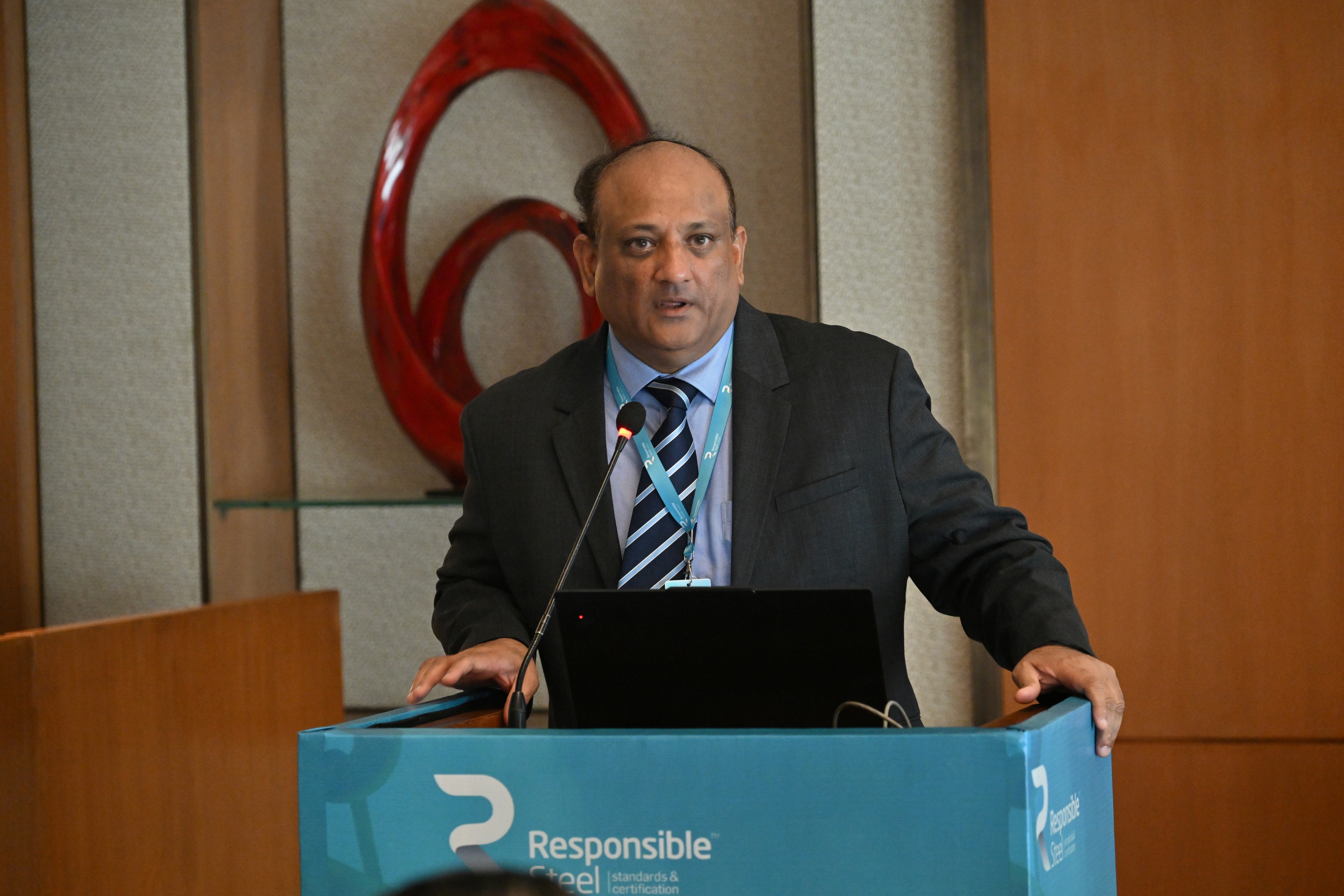

Shaping India’s steel transition: Reflections from ResponsibleSteel’s Policy Convening in Delhi
As India’s steel industry navigates the twin imperatives of growth and sustainability, ResponsibleSteel hosted a policy convening in Delhi earlier this year to explore pathways for steel decarbonisation in India.
Held under the theme “Decarbonisation of India’s steel sector: Dynamics of the energy transition and the role of standards,” the event brought together leaders from government, industry, and civil society to discuss how credible standards, collaboration, and innovation can accelerate India’s transition to low-emission steel. Participants included Tata Steel, JSW Steel, Tata Motors, the Indian Steel Association, WWF, Climate Group, and the Council on Energy, Environment and Water, as well as representatives from the Hydrogen Mission India, the Ministry of Cooperation and the Ministry of New and Renewable Energy.
The convening was opened by the Hon’ble Minister of State for New and Renewable Energy (MNRE), Shri Shripad Yesso Naik, whose keynote address framed the energy transition as both an environmental necessity and a moral responsibility. Reaffirming India’s commitment to achieving net-zero emissions by 2070, he described the transition as “a gift we must leave behind—a legacy of ethical industry.”
He encouraged India’s industry to lead through innovation, highlighting green hydrogen as the cornerstone of the transformation and urging investment in carbon capture, smart furnaces, and Direct Reduced Iron (DRI).
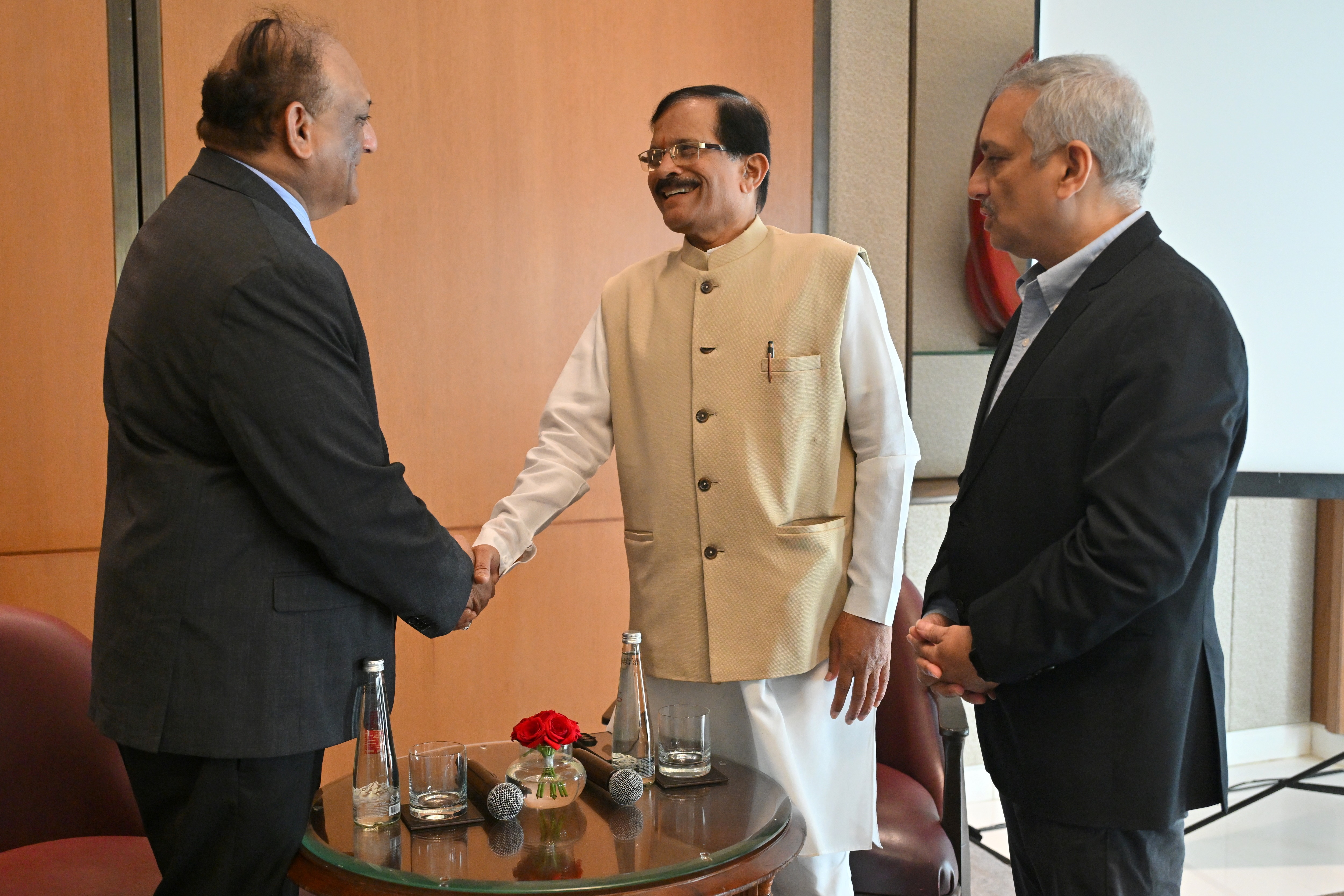
Industry perspectives: Progress and challenges
Senior industry leaders shared insights on their progress, highlighting several areas of development:
- Hydrogen-based pilots are underway with positive results, marking a shift in the future of steel production in India.
- There is increasing integration of renewable energy into steel operations, particularly solar and wind, enabling greater energy autonomy.
- A growing focus on circularity and scrap-based production is emerging to reduce lifecycle emissions.
At the same time, industry participants acknowledged significant barriers to the transition, above all, the high cost of green hydrogen, limited access to clean energy, land availability and grid challenges, and gaps in hydrogen infrastructure.
Policy, incentives, and the role of standards
Discussions also touched upon a clear, globally aligned national framework to support policy, finance, and trade. Shivakumar K., ResponsibleSteel’s Director of Development and Innovation, emphasised the role standards can play as strategic tools that build trust, guide policy and investment, and support industry transformation. By adopting, integrating, or aligning with international standards, national policy frameworks can demonstrate leadership and maintain competitiveness in the global market.
Clear priorities emerged in the discussions, including the need to:
- Ensure interoperability between India’s taxonomy and international standards and policy mechanisms to support trade and global compliance.
- Establish robust certification frameworks to build investor confidence.
- Embed standards within policy narratives linking industry decarbonisation with employment, equity, and regional development.
The convening also discussed policy incentives to accelerate the transition, with representatives from MNRE highlighting ongoing initiatives such as the National Green Hydrogen Mission, which plans to allocate ₹19,744 crore (around $2.2 million) to produce five million tonnes of green hydrogen by 2030.
However, participants stressed that more targeted support is needed, such as tax credits to encourage early adoption of low-carbon technologies.
Toward a responsible, low-emission future
The Delhi convening reaffirmed the growing momentum behind India’s steel transition. It also underscored the essential role of international standards in shaping national policy frameworks and unlocking sustainable finance.
ResponsibleSteel’s engagement with industry stakeholders in India will continue to build on the momentum created in Delhi, laying the groundwork for a responsible, near-zero industry, built on cross-border collaboration.
Learn more about the ResponsibleSteel International Production Standard.
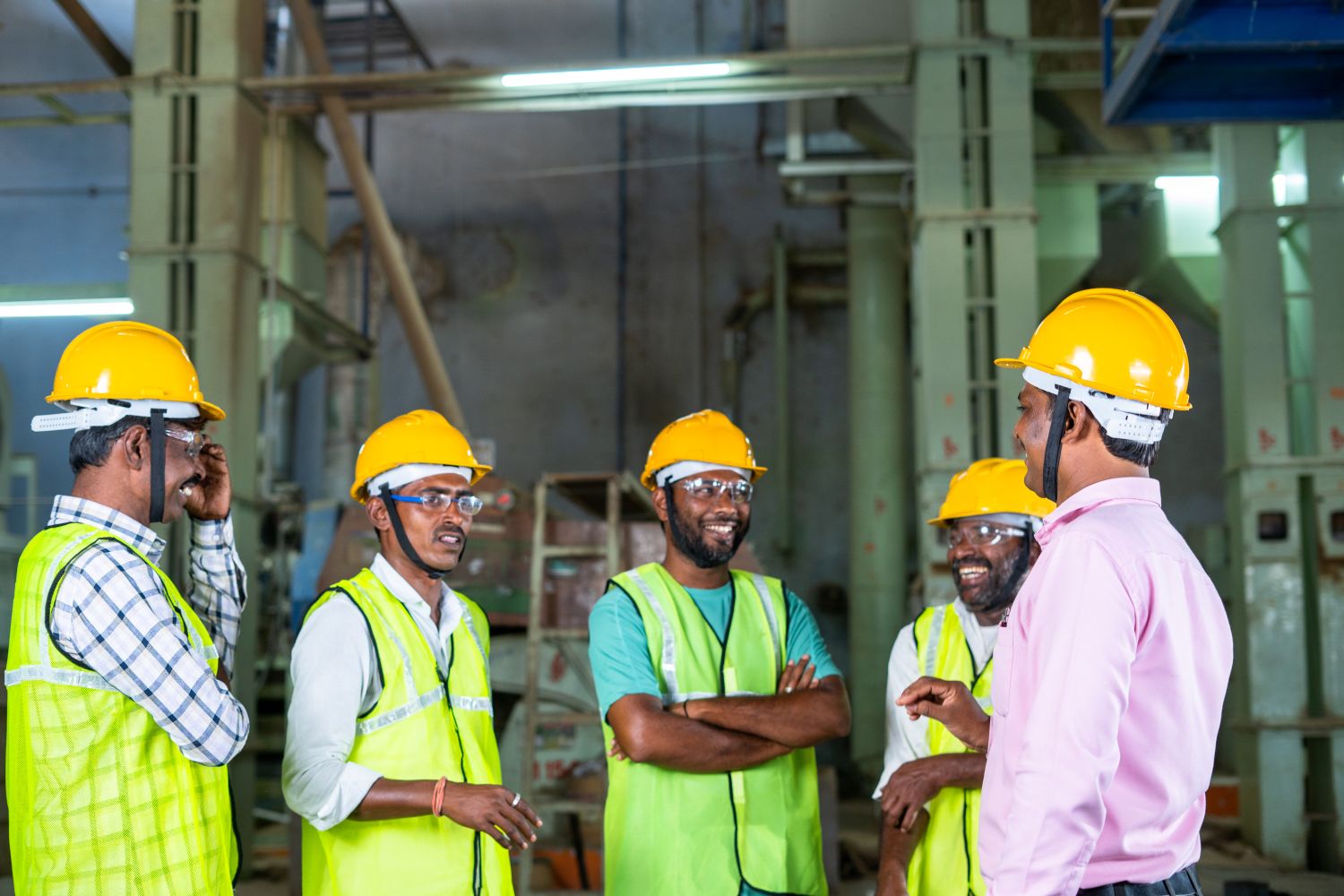

Human rights in steel: ResponsibleSteel's approach
The steel industry is experiencing a significant transformation, with human rights increasingly recognised as a key aspect of that change. International Human Rights Day serves as a reminder of why this is so important. It commemorates the day in 1948 when the United Nations General Assembly adopted the Universal Declaration of Human Rights. This sets out a broad range of fundamental rights, protections and freedoms to which all of us are entitled, regardless of nationality, place of residence, gender or any other status.
According to the latest report by the OECD, the steel industry employs more than six million individuals worldwide. It’s a key pillar of the global economy and a major source of jobs. However, from the extraction of raw materials to the manufacturing of finished steel products, every step of the steelmaking process can pose significant risks to human rights. These risks can arise from unsafe labour conditions, the displacement of Indigenous communities, or environmental degradation that affects local populations. Ensuring steel is produced responsibly, with care and consideration for workers and local stakeholders, requires rigorous and multifaceted mitigation measures to minimise these risks.
That’s why ResponsibleSteel’s International Production Standard incorporates vital requirements to help safeguard workers, communities, and local ecosystems and foster a culture of safety and respect across the supply chain. Already, around nearly 90 sites have achieved ResponsibleSteel Core Site Certification, which assesses steelmakers against more than 300 core requirements. These span key social and environmental aspects of steelmaking, including human rights, health and safety, labour rights, and impacts on local communities. Sites undergo a robust, independent audit process involving documentation review, on-site visits, and extensive engagement with workers and local stakeholders. This isn’t just a box-ticking exercise – achieving certification demonstrates a clear commitment to upholding the full scope of ESG responsibilities.
The Human Rights Principle is central to our International Production Standard because it is a fundamental component to building an industry that is sustainable, safe and grounded in respect. Together, the 13 Principles embedded in our Production Standard ensure that the safety of workers, the wider community and the environment is prioritised at every stage of steel production.
This Human Rights Day serves as a reminder that the steel industry must consider and support the people who power it, and without strong frameworks in place to do so, there can be no true social or environmental progress.
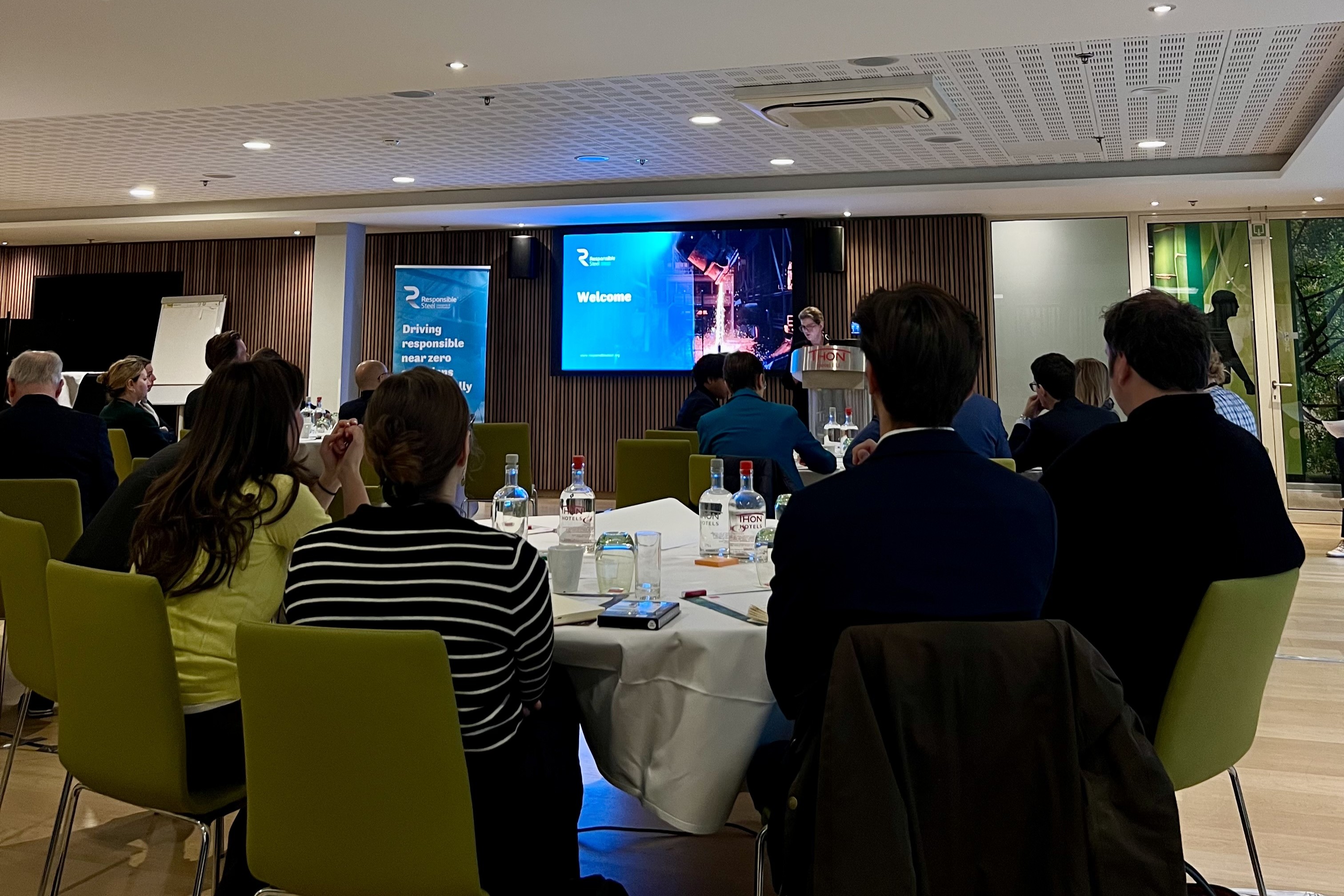

Certification as a catalyst: ResponsibleSteel leads EU dialogue on industrial transformation
Earlier this year, ResponsibleSteel brought together senior representatives from European government institutions, industry, standards bodies, civil society, and finance for a high-level policy roundtable in Brussels to discuss certification as a catalyst for industrial decarbonisation.
Europe is entering a decisive phase of industrial and climate policymaking. With the EU Emissions Trading System (ETS), Carbon Border Adjustment Mechanism (CBAM), and a forthcoming low-carbon steel label, the stakes are high.
The challenge is clear: how can independent, voluntary certification accelerate the transformation of Europe’s steel industry? And just as importantly, how do we ensure these standards work seamlessly with government policies and regulations, aligning climate ambition, safeguarding competitiveness, and building trust across the value chain?
Three key takeaways
Three priorities stood out during the Brussels discussions:
1. Achieving coherence and interoperability
Aligning the EU Emissions Trading System (ETS), Carbon Border Adjustment Mechanism (CBAM), and product labels is critical to avoid policy fragmentation. This ensures that climate performance and market access work hand in hand, rather than pulling in different directions.
2. Building trust through robust assurance and traceability
Strong assurance systems are essential to give businesses and consumers confidence in sustainability data. This helps prevent greenwashing and ensures that claims about low-carbon steel are credible and transparent.
3. Embedding integrity beyond carbon
Europe’s industrial transformation must go further than emissions. It should integrate environmental and social responsibility—from labour rights and biodiversity protection to circularity and resource efficiency—creating a truly sustainable steel sector.
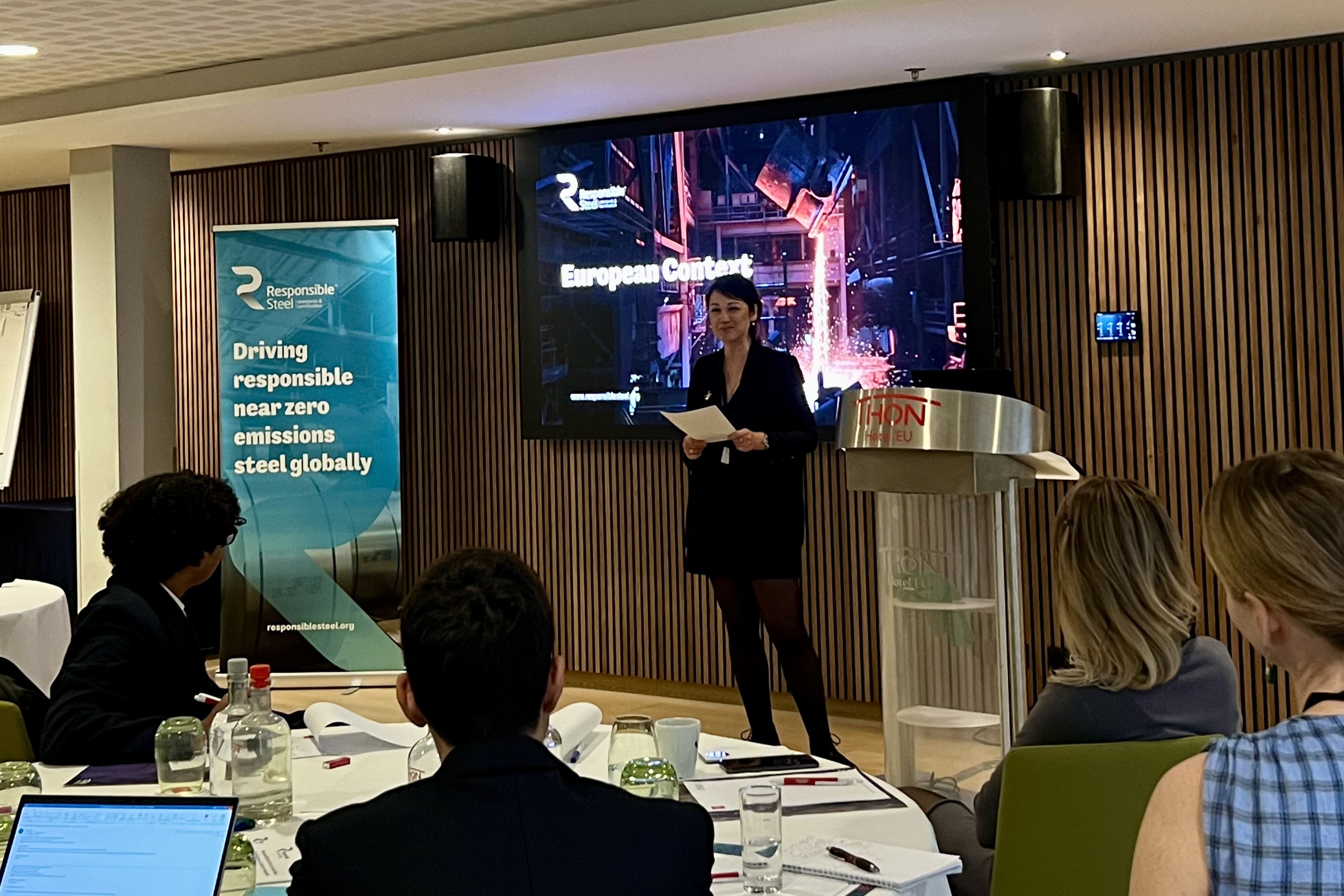
A call for coherence and clarity
The outcome of the discussions was clear. As one participant observed, "Europe doesn't need more bureaucracy—it needs coherence, trust, and credible evidence." This means having a trusted data backbone linking policy instruments rather than multiplying accounting systems. Global certification and assurance frameworks like ResponsibleSteel can provide that backbone, reducing complexity and ensuring comparability across borders.
Recent EU policy developments, such as the expected steel trade defence measure, are prime examples of how trade and climate instruments must evolve coherently. Europe’s policy architecture must be designed to reward verified low-emission steel, ensuring that trade and climate policy pull in the same direction. Certification can serve as the "connective tissue" of industrial policy, translating ambition into verifiable data and helping policymakers and businesses meet the integrity test of Europe's Green Deal.
Going beyond carbon
Another key point made was that Europe must progressively move beyond carbon-only metrics towards integrating environmental and social integrity more broadly. Climate metrics alone aren’t enough. ResponsibleSteel remains the only globally recognised standard that integrates emissions, labour, biodiversity, and governance into one assurance model. A holistic approach ensures Europe’s industrial transition is not just green, but fair.
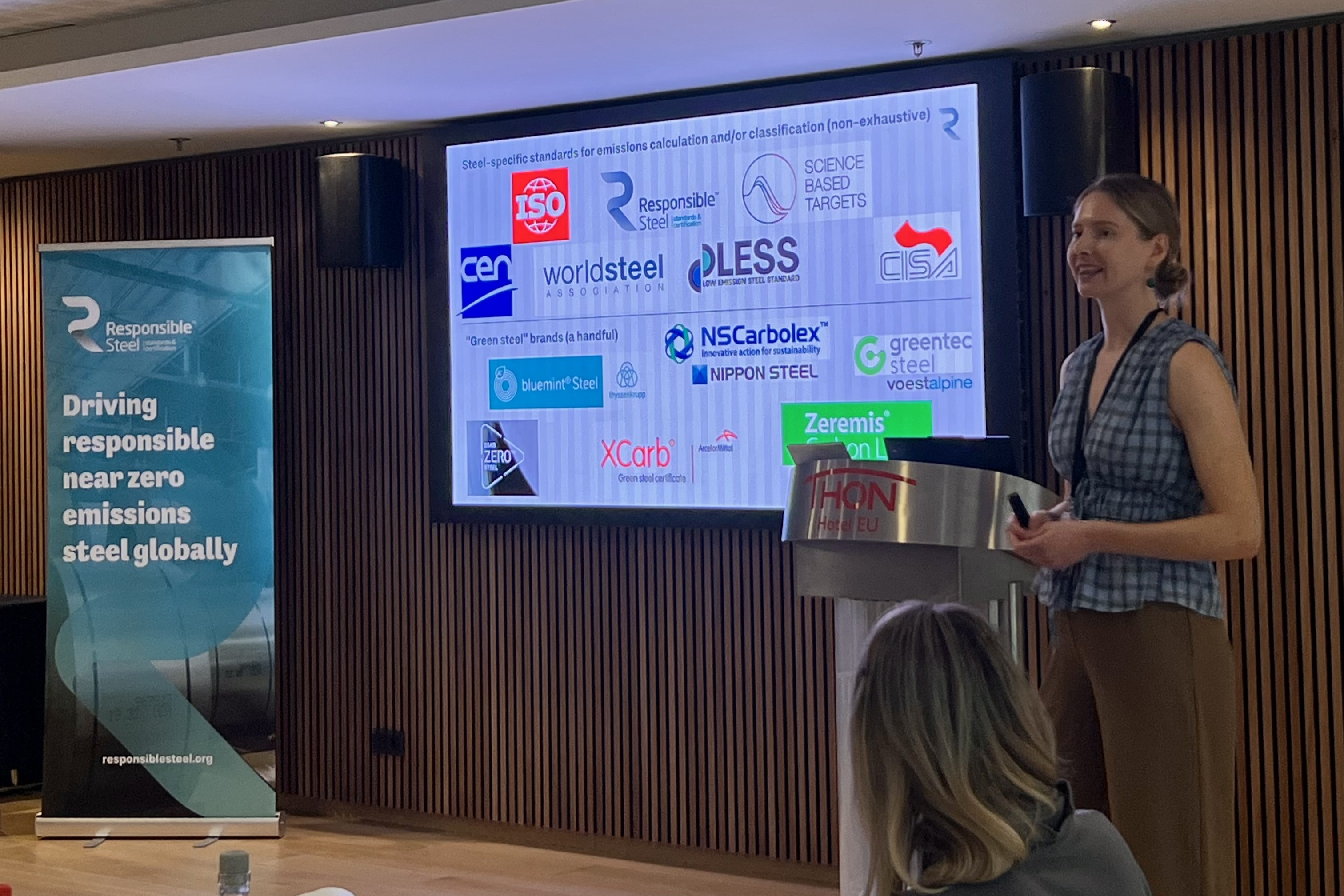
Certification: Turning intent into impact
"Certification is no longer a technical afterthought—it's what turns climate intent into credible, measurable impact," said ResponsibleSteel CEO Annie Heaton. "The roundtable confirmed that credible, interoperable standards are now essential for Europe’s industrial transition. ResponsibleSteel's agreement with the Brussels-based Low Emission Steel Standard (LESS), announced at COP30, was a major milestone on the road to greater alignment.”
With new trade-defence measures on the horizon, ResponsibleSteel will continue working with policymakers, industry, and civil society to make certification a cornerstone of Europe’s climate-industrial architecture.
Because only when integrity and ambition move together—through coherence, credibility, and verified performance—can Europe’s industrial transition truly succeed.
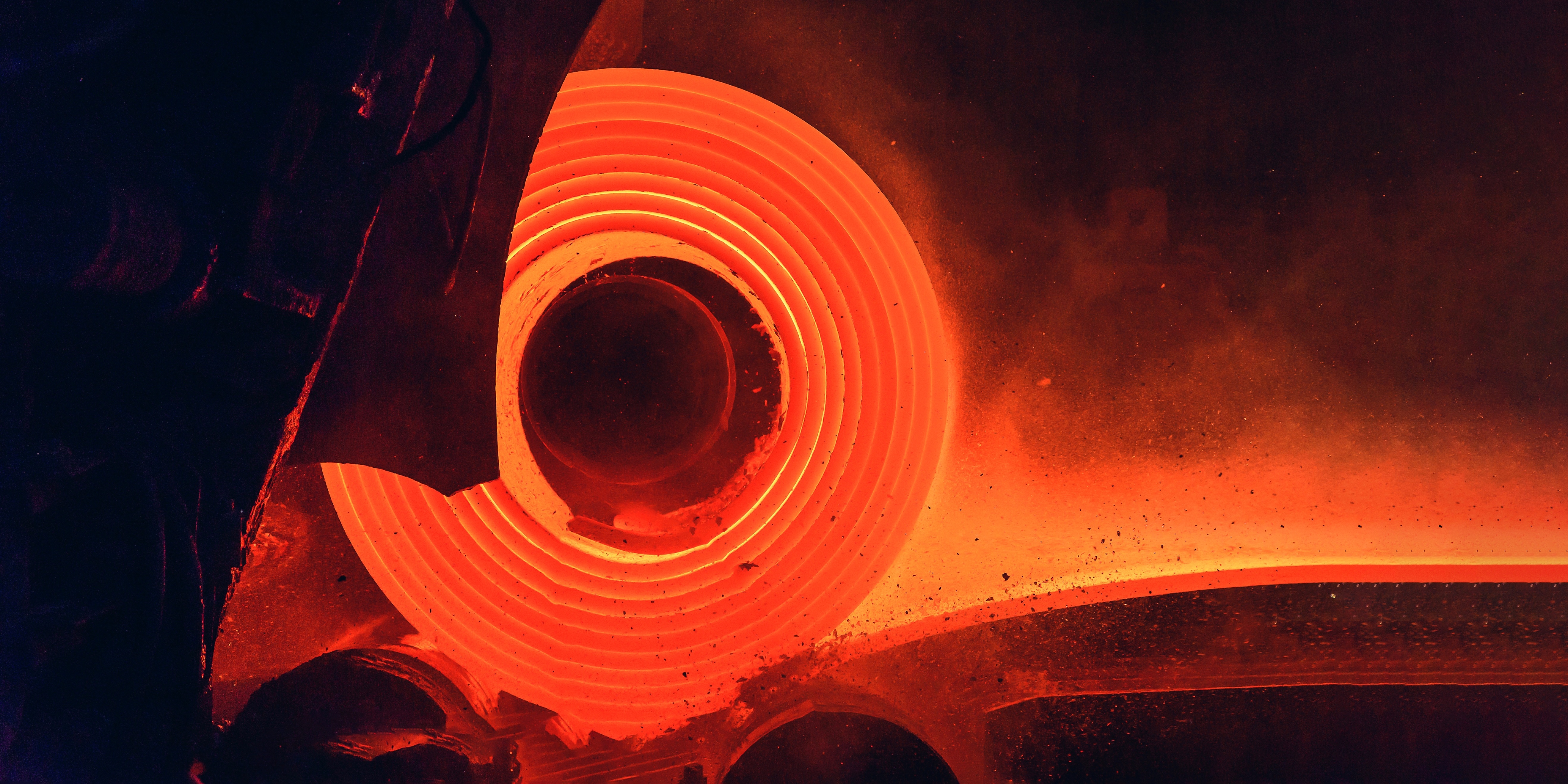

Public Statement: The EU Label for Steel Should Build on the Sliding Scale Approach
As announced in the Clean Industrial Deal, the European Commission is expected to put forward an EU label for steel on 10 December as part of the Industrial Accelerator Act. This label aims to incentivise and reward investments in the decarbonisation of steel production. To succeed, the EU must establish a clear, credible, and uniform framework that incentivises genuine and additional greenhouse gas (GHG) emission reductions across all production routes while preserving industrial competitiveness. The concept of the ‘Sliding Scale’, also known as ‘Steel Decarbonisation Scale‘, initially proposed by the International Energy Agency (IEA) and adopted by ResponsibleSteel, LESS, and CISA, offers a robust, technology-neutral, and globally inclusive approach which aligns with the WTO TBT Principles. This paper argues for the adoption of the Sliding Scale as the basis for the European Label for Steel, ensuring a fair and effective transition of the steel industry to near-zero emissions steel.
The Sliding Scale: A Fair and Effective Framework for Europe
The Sliding Scale evaluates steel production based on both GHG intensity and the share of scrap used. This dual approach ensures that decarbonisation progress is recognised and rewarded, independently of the production route or scrap input.
By contrast, a purely footprint-based approach fails to guide the industry toward near-zero emissions. Footprint-based specifications are designed to reduce emissions at the product level, but this won’t lead to global GHG reduction if achieved by higher recycled content alone as doing so would simply shift scrap and emissions from one product, project or region to another (see report “The role of scrap in steel decarbonisation” by the Institution of Structural Engineers and the ”Civil Society Response to GSCC Steel Standard” signed by 12 NGOs which outline this in a compelling way). In other words, a footprint-based approach would merely outsource the decarbonisation of primary production to third countries and make the EU steel industry more vulnerable and less resilient.
Why the Sliding Scale Works
The Sliding Scale encourages all producers, primary (ore-based) and secondary (scrap-based), to decarbonise. For secondary producers using the Electric Arc Furnace (EAF) route, it incentivises measures such as increasing the use of green electricity and decarbonising hot-forming processes. These improvements are less capital-intensive than decarbonising ore-based primary steelmaking, allowing EAF producers to achieve better performance classes faster. This is clearly demonstrated by the first certificates awarded under LESS, where secondary steel routes achieved substantially better classifications than primary steel routes, and by the first steel certification by ResponsibleSteel, which was awarded to an EAF facility with 57% scrap inputs.
The EU label should include upstream scope 3 emissions (raw materials) from the start, thereby ensuring that "near-zero steel" is truly decarbonised across the entire value chain. This prevents carbon leakage and ensures that decarbonisation efforts are not undermined by shifting emissions from one part of the value chain to the other.
The Need for Decarbonised Primary Steel in Europe
Europe cannot rely on scrap-based production alone. The availability of high-quality scrap is limited, and this will become even more of an issue as demand rises. When EAF operators cannot source enough high-quality scrap due to qualitative constraints (e.g. the level of trace elements present), they require primary iron inputs (e.g. direct reduced iron). Consequently, the distinction between primary and secondary steel production will be increasingly blurred going forward. The Sliding Scale approach takes this into account by attributing suitable emission thresholds depending on the scrap content.
If Europe fails to decarbonise its primary steel production, it risks increasing its dependency on imports, which are often from regions with higher average emissions, while undermining its own climate commitments.
A European Label for Steel
In order to increase demand for low-emission steel, Europe needs a Steel Label that provides buyers with clear, comparable and actionable information. The Sliding Scale offers the ideal foundation for such a label:
- It incentivises all producers – primary and secondary – to decarbonise.*
- It preserves Europe's industrial competitiveness by ensuring that primary and secondary steel production decarbonise and remain viable in Europe.
- It supports the EU’s and global climate goals by driving real emissions reductions, not just scrap redistribution.
- It provides transparency on both emissions intensity and scrap share, enabling informed purchasing decisions.
International Perspective
The Sliding Scale approach was developed by IEA when proposing low-carbon steel and cement definitions for policies to support decarbonisation. These principles have since been endorsed and further refined by G7 members and the Climate Club, who affirmed the need for globally harmonised, yet flexible, emissions standards to accelerate industrial decarbonisation.
Building on this foundation, the Sliding Scale was adopted by ResponsibleSteel, the Low Emissions Steel Standard (LESS), and the China Iron and Steel Association (CISA), which together represent around 60% of global steel production. These are all part of the Steel Standard Principles-Initiative, which aims to align steel standards and create transparency in the market. ResponsibleSteel is actively working on interoperability and potential equivalency mechanisms with LESS and CISA to enable efficient low emissions steel markets. This enables public and private buyers to make informed, sustainable procurement decisions based on reliable and comparable data.
Demand-Side Measures and Policy Alignment
A Steel Label is only effective if paired with strong demand-side policies. Europe must actively foster lead markets that position low-emission steel as the standard choice for both public and private procurement. This requires aligning climate and industrial policies to drive demand in key sectors, such as construction, infrastructure, defence, and automotive, where steel plays a critical role. By embedding the Sliding Scale into sector-specific regulations, incentives, and public procurement criteria, Europe can create a stable, predictable market for clean steel, ensuring that its industry remains resilient and future-proof in a decarbonised global economy.
Conclusion: A Strategic Path Forward
The Sliding Scale provides a technology-neutral framework for incentivising genuine GHG emission reductions in steel production. LESS and ResponsibleSteel serve as prime examples of its successful implementation - transparent, operational standards that classifies steel based on emissions intensity and scrap share. Both systems account for upstream scope 3 emissions and are working together to ensure interoperability. By incorporating the Sliding Scale approach into the Industrial Accelerator Act and future steel policies, Europe can establish a coherent, equitable, and efficient framework for transitioning to a climate-neutral steel industry. This will accelerate decarbonisation while safeguarding jobs, strengthening industrial resilience, and upholding climate integrity.
*Includes primary producers (<25% scrap), secondary producers (>70% scrap), and producers which aren't currently classified as either (25-70% scrap).
Download the statement here.
.png)


